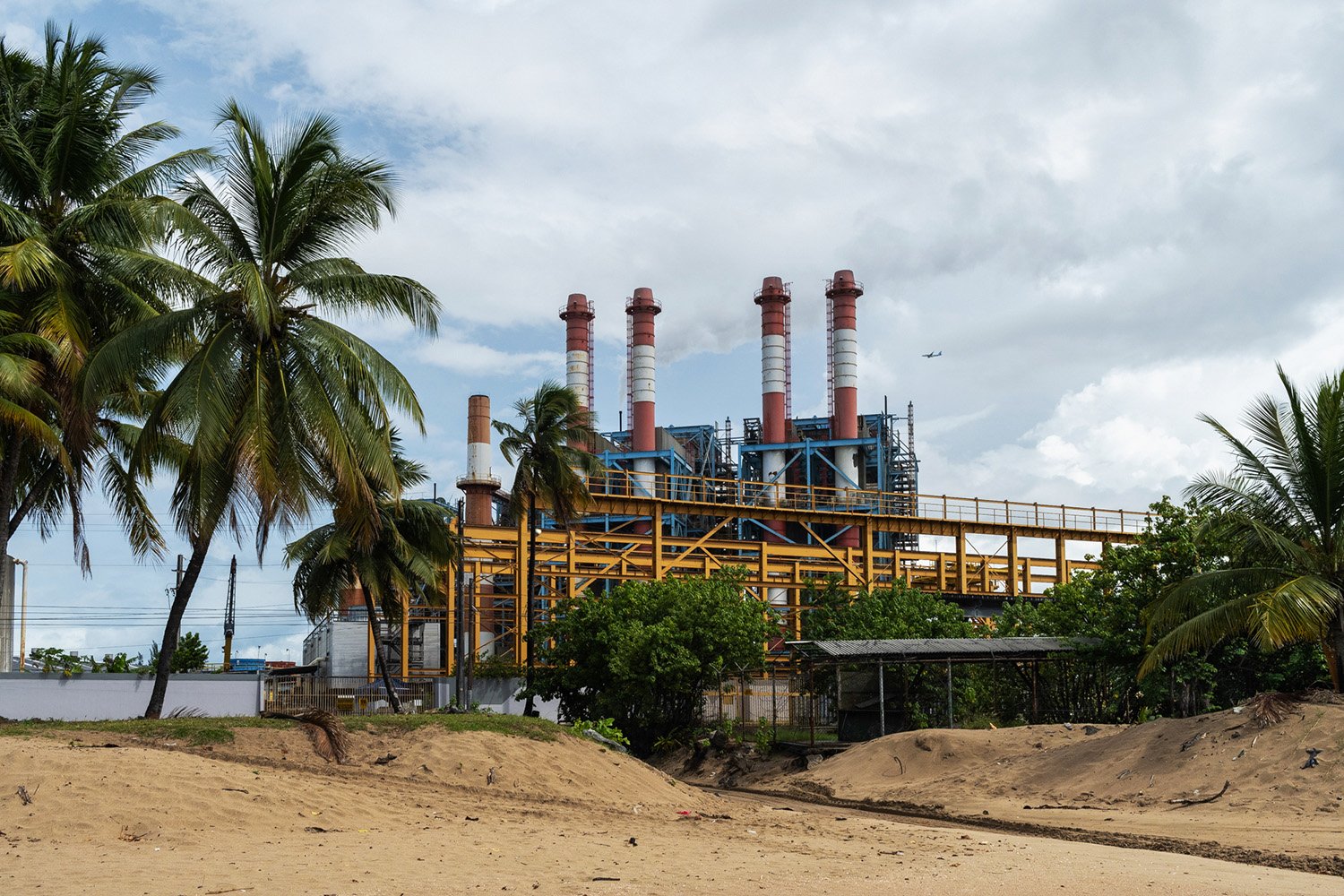
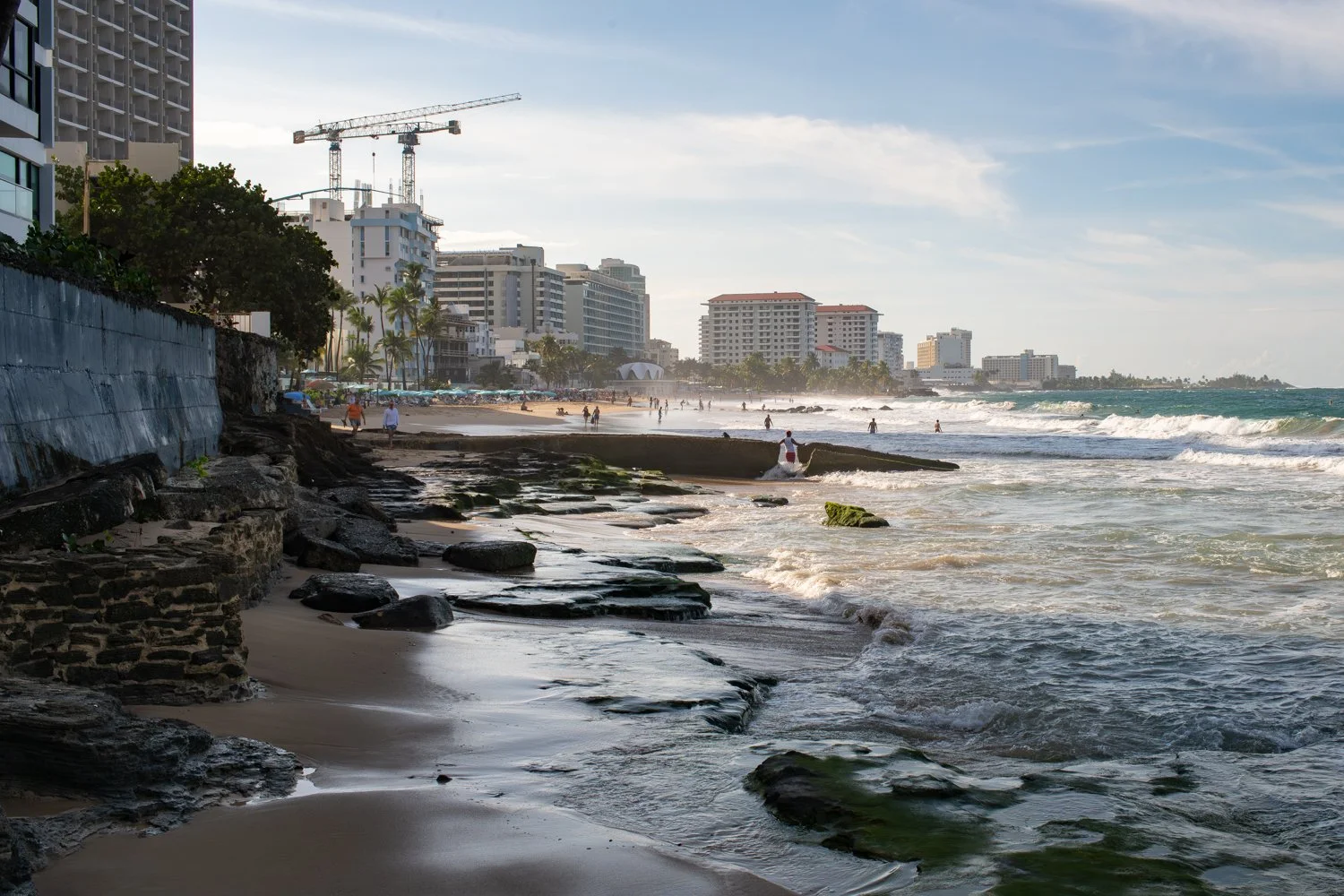
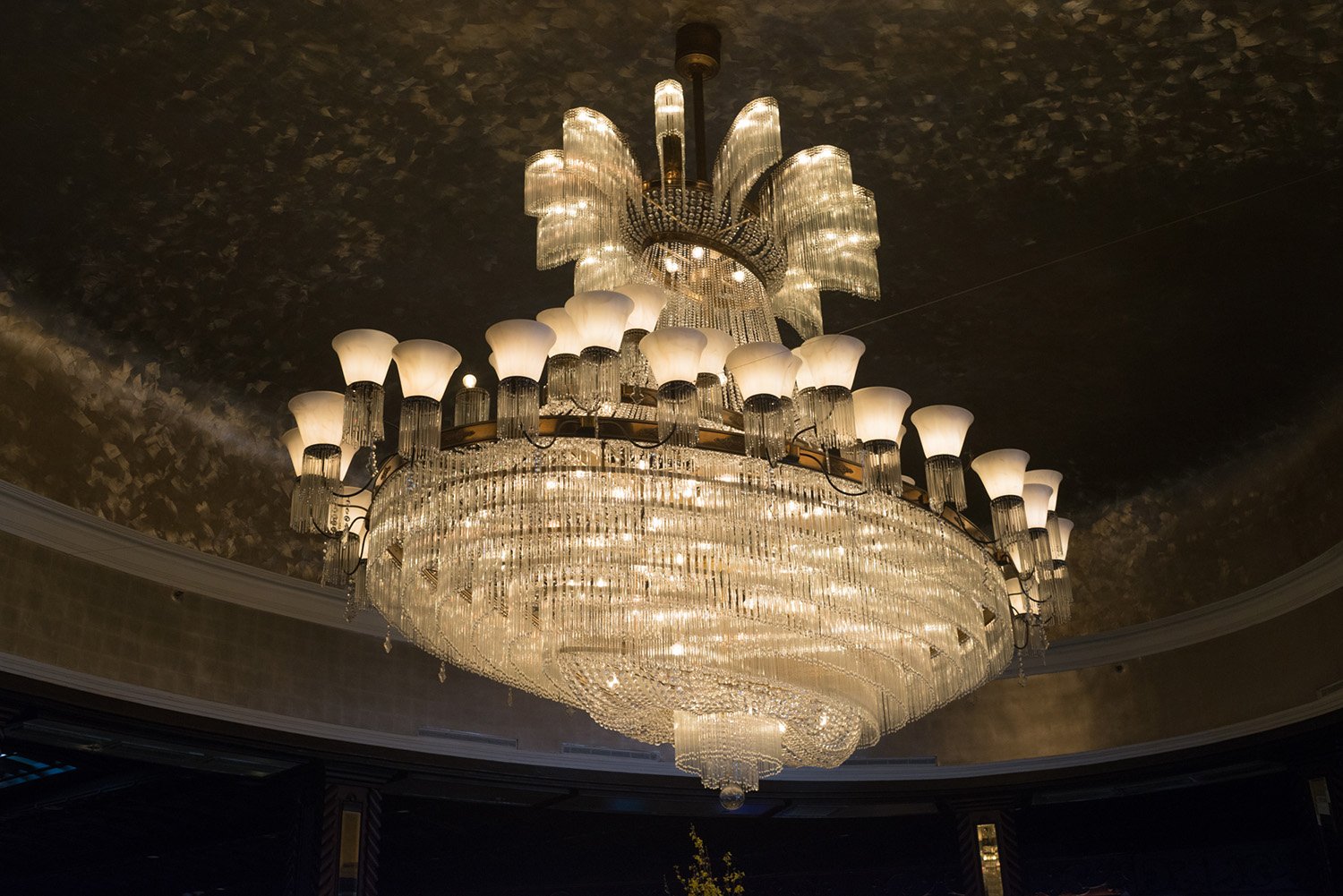

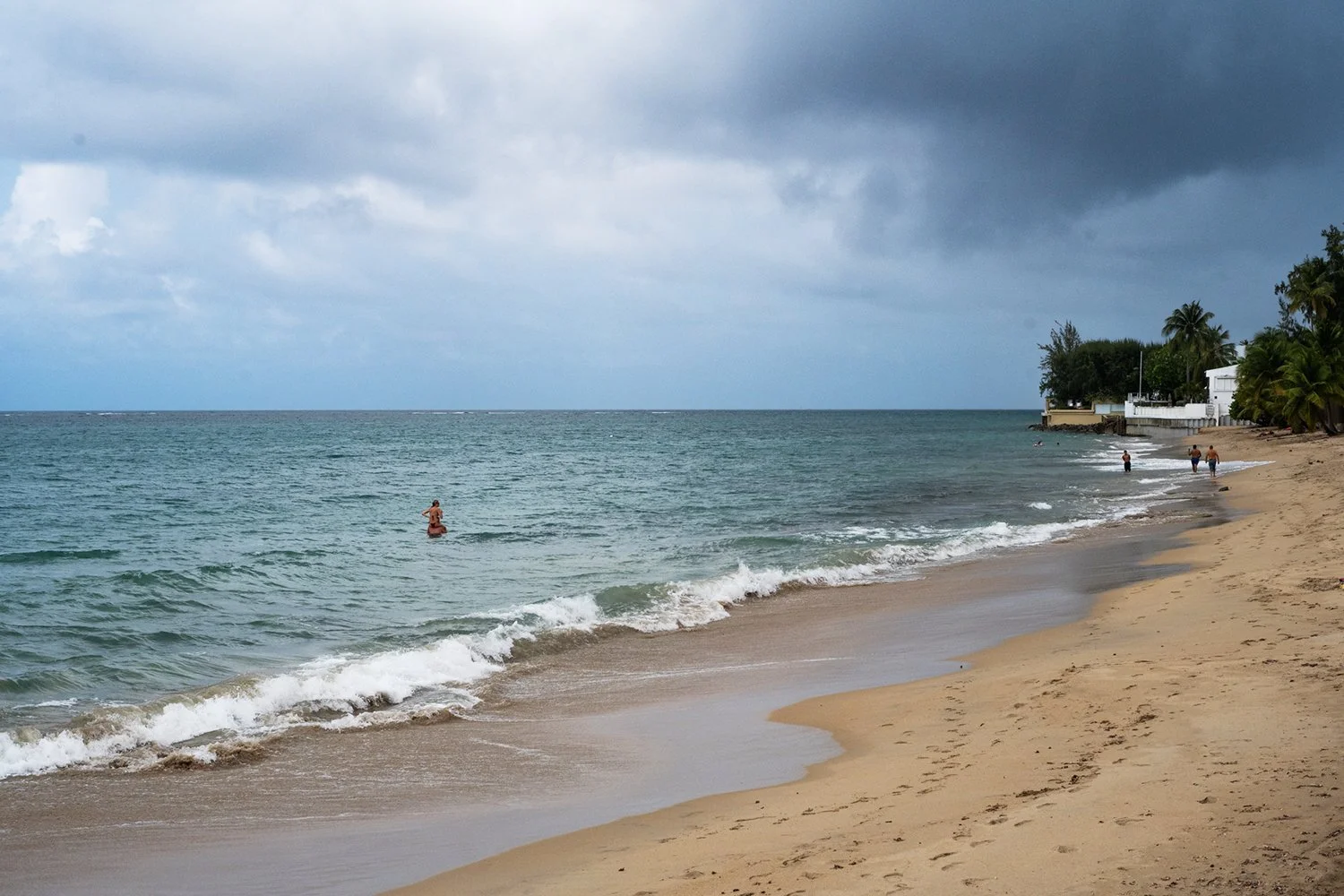
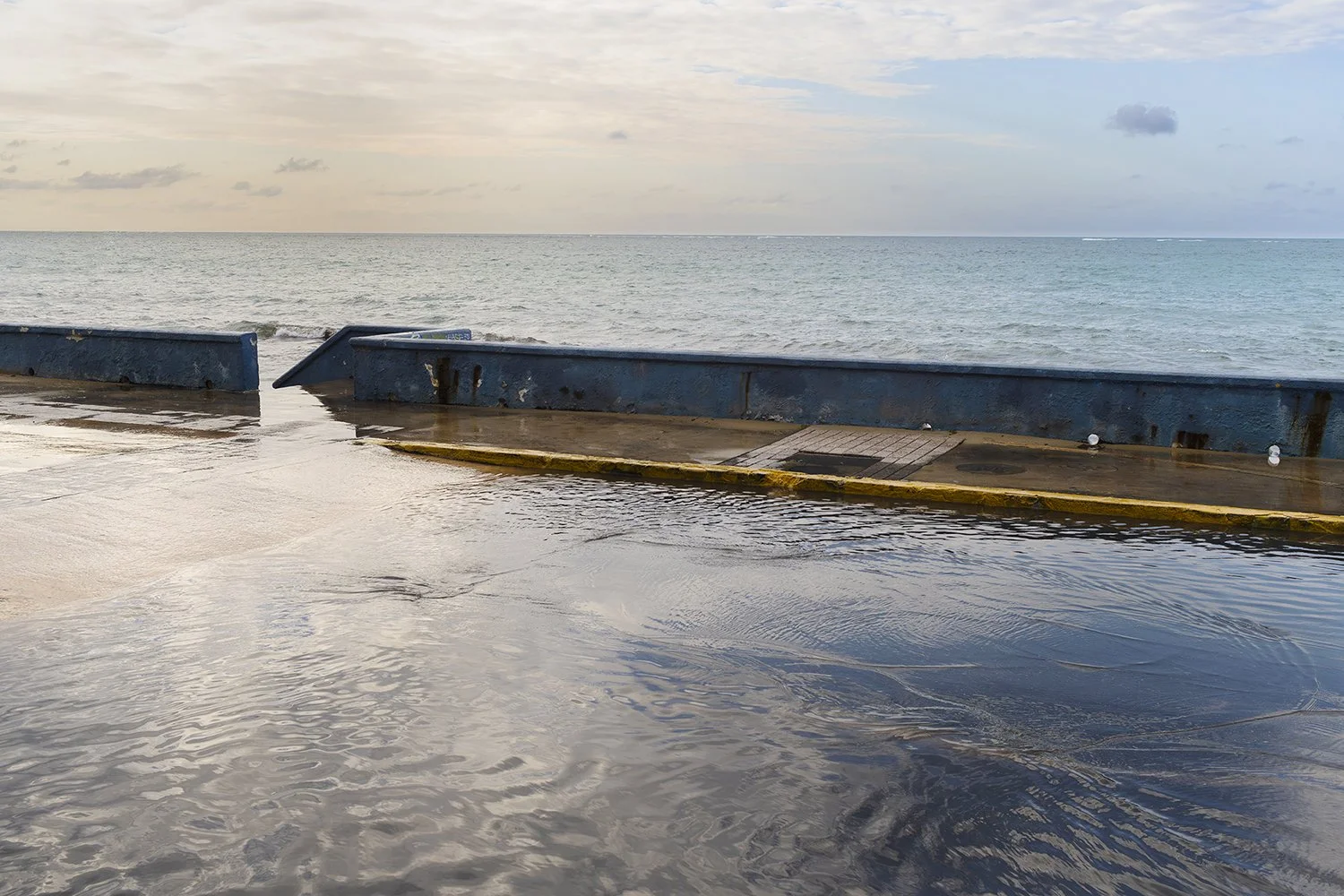


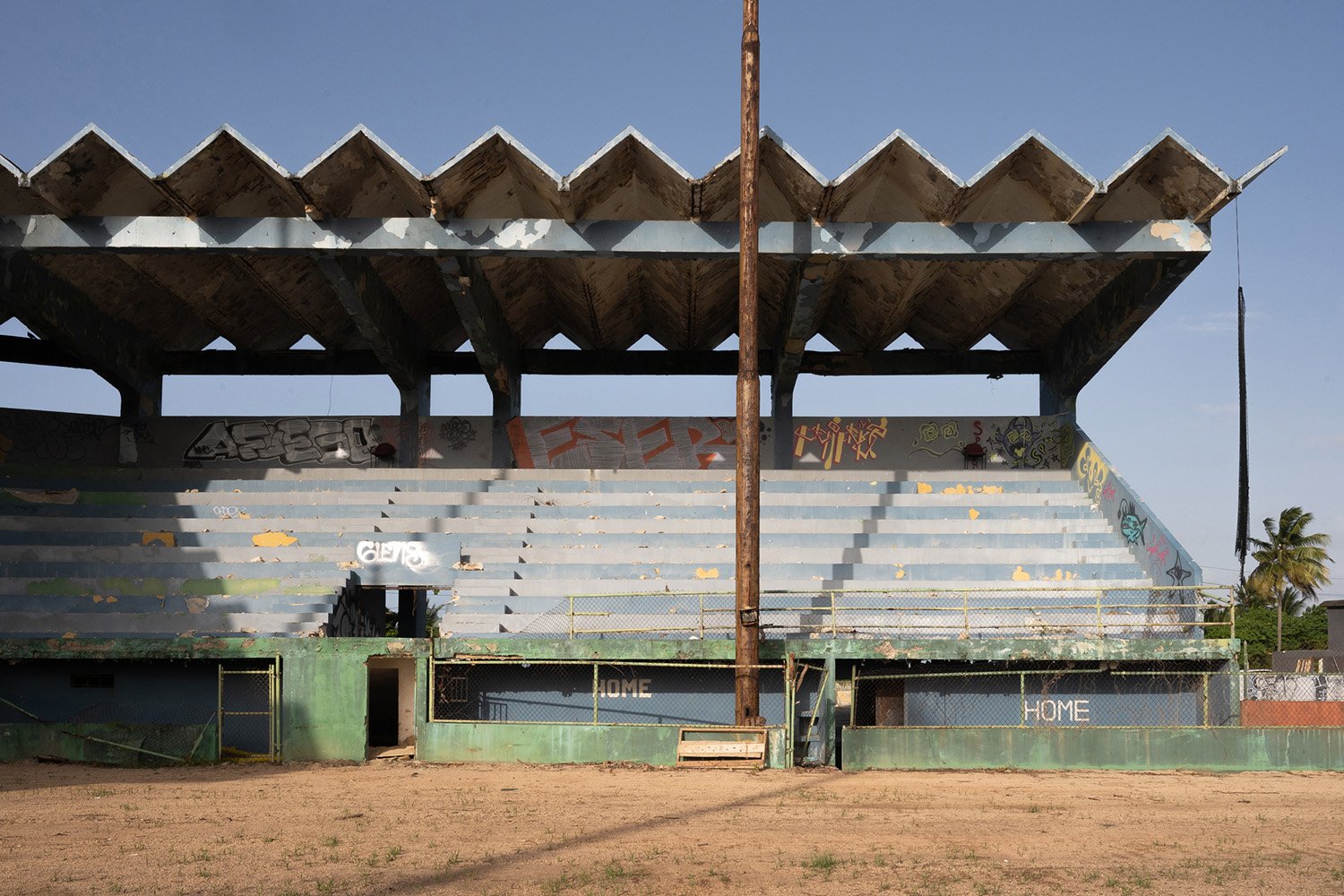
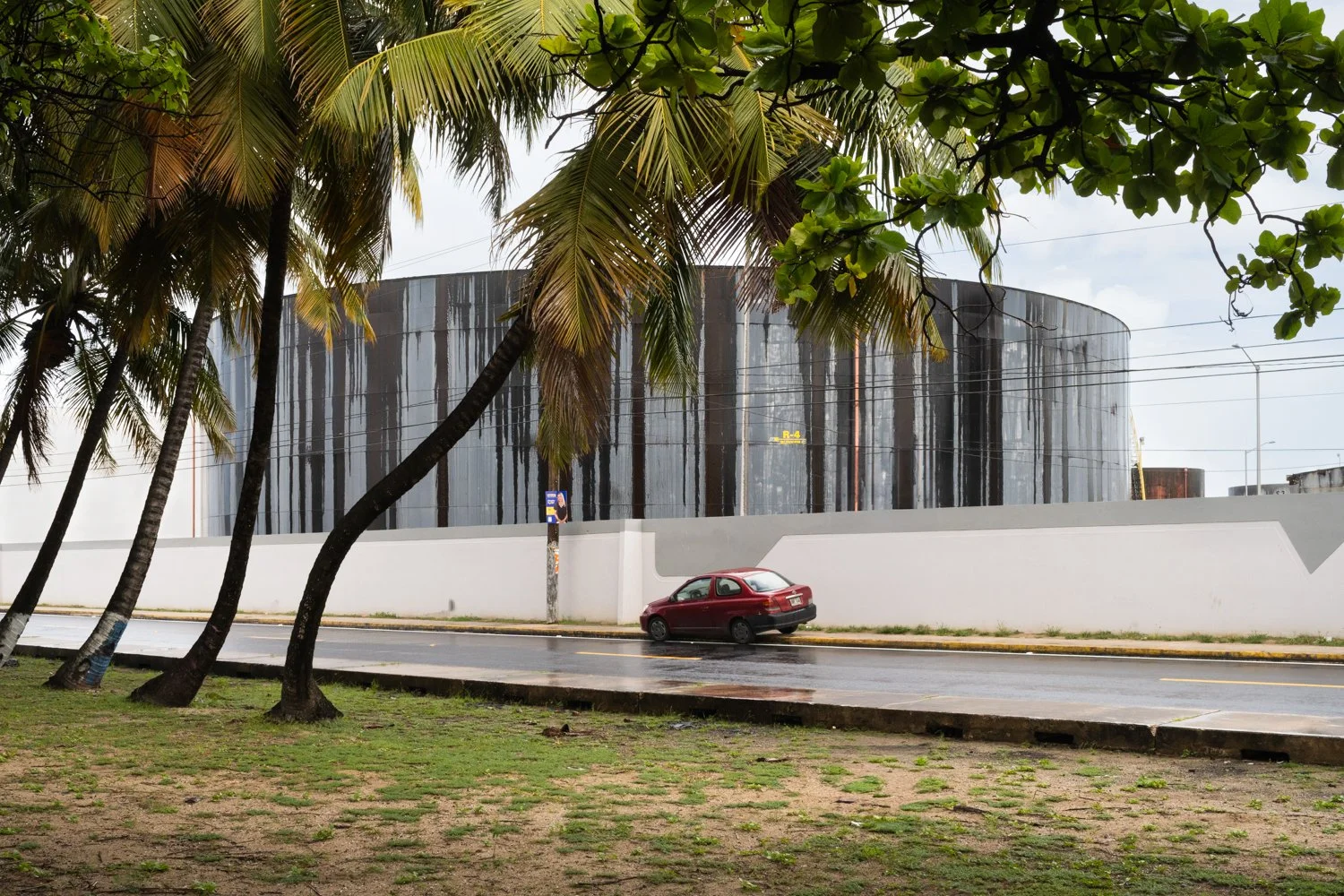
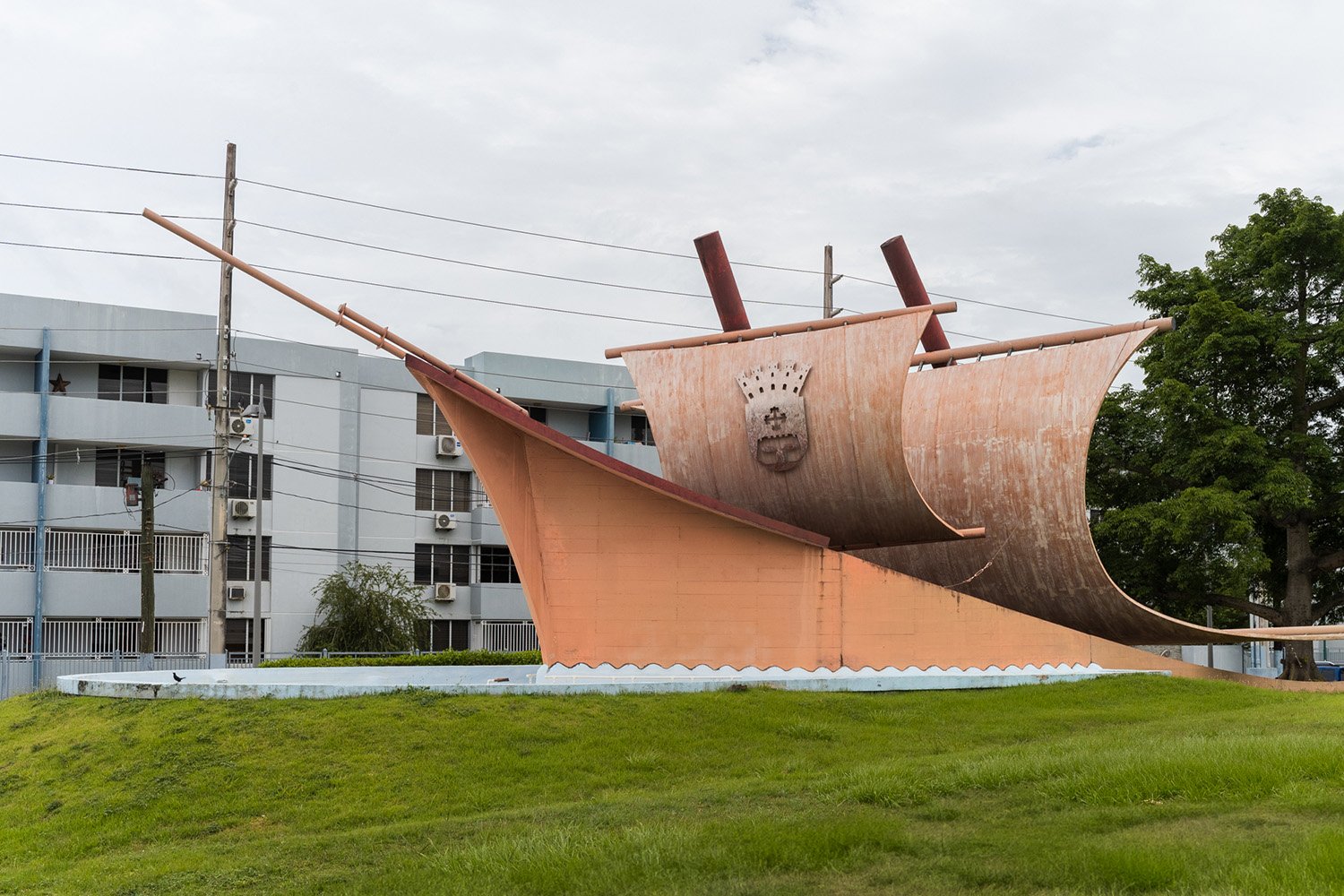
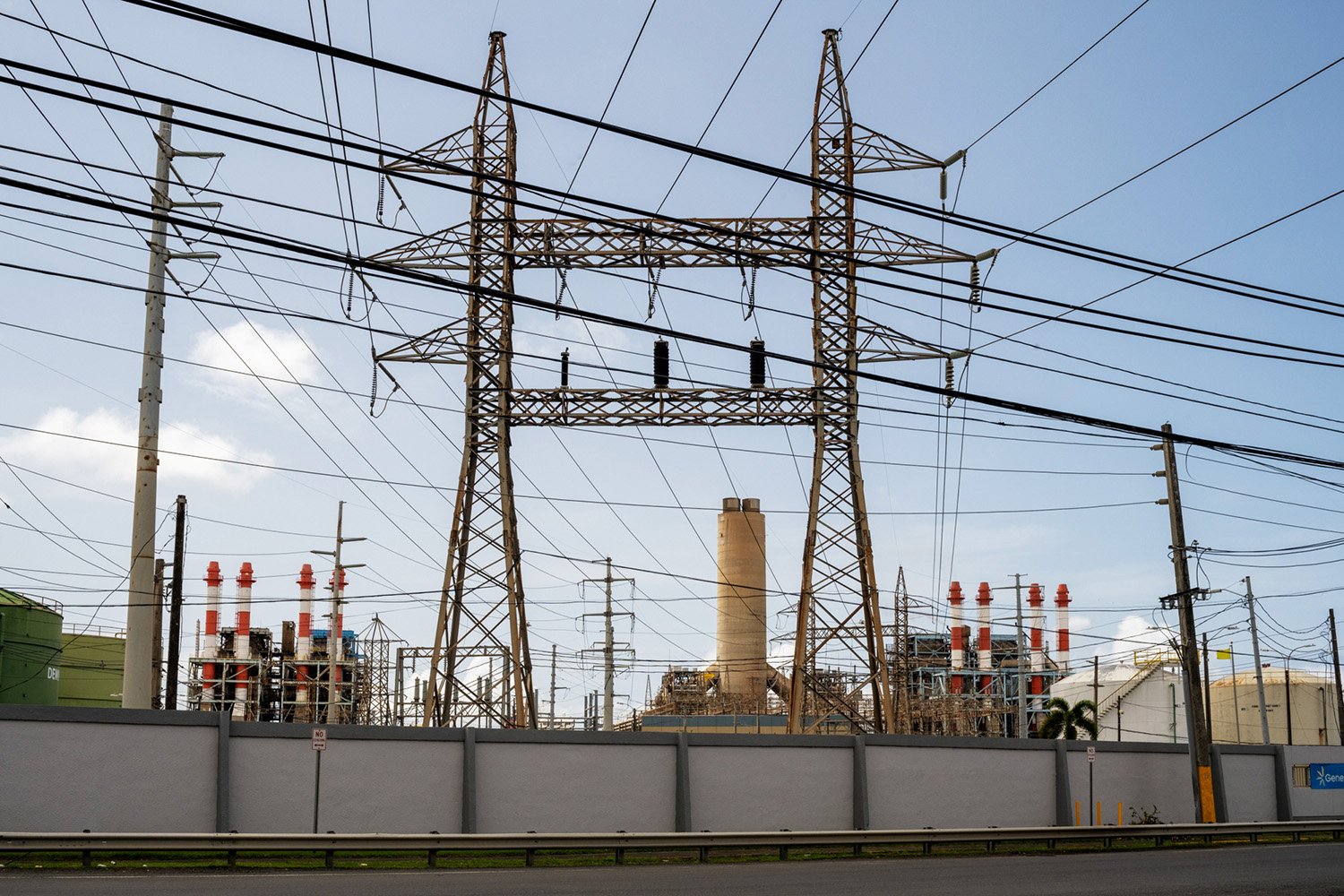

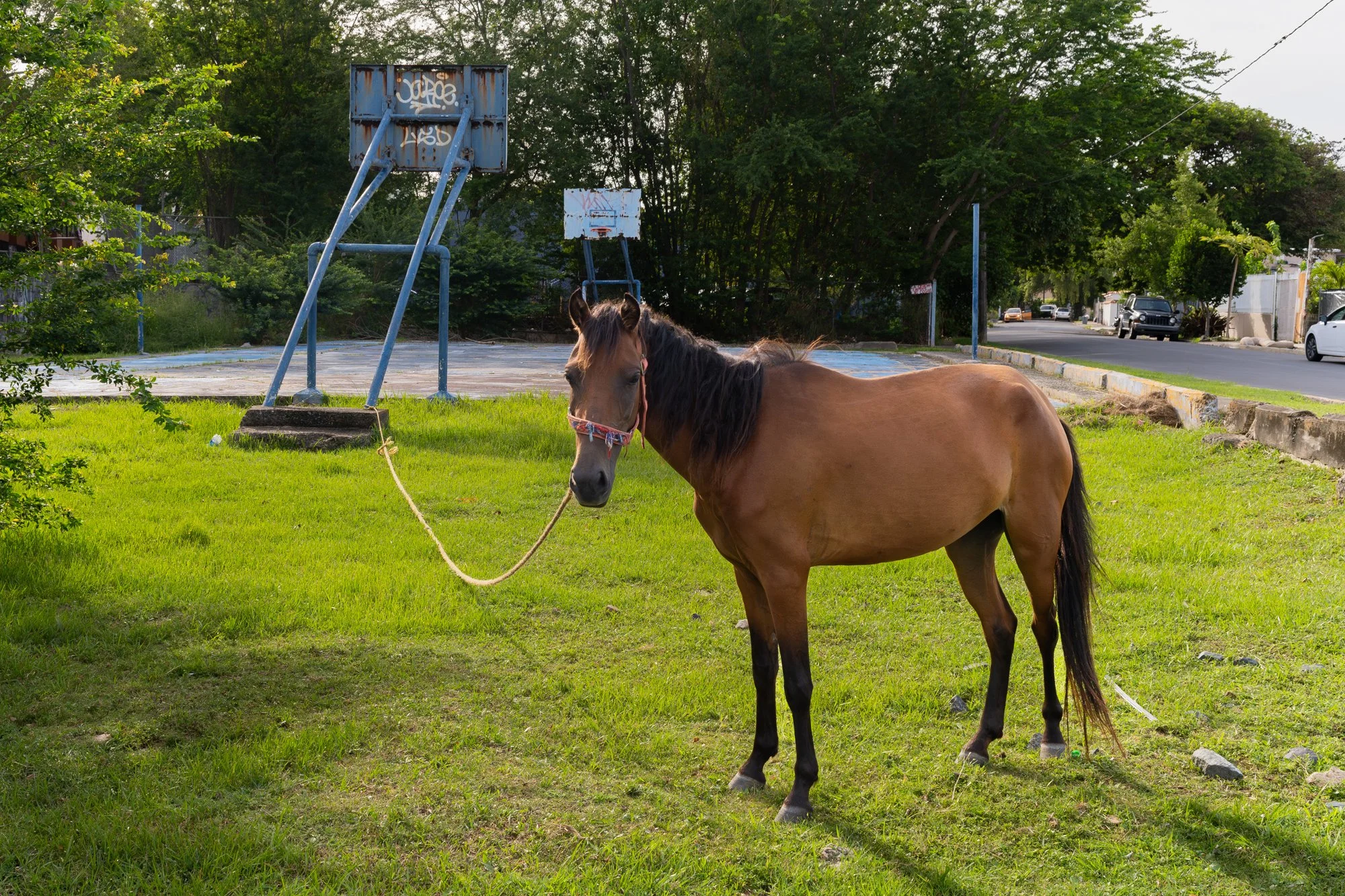
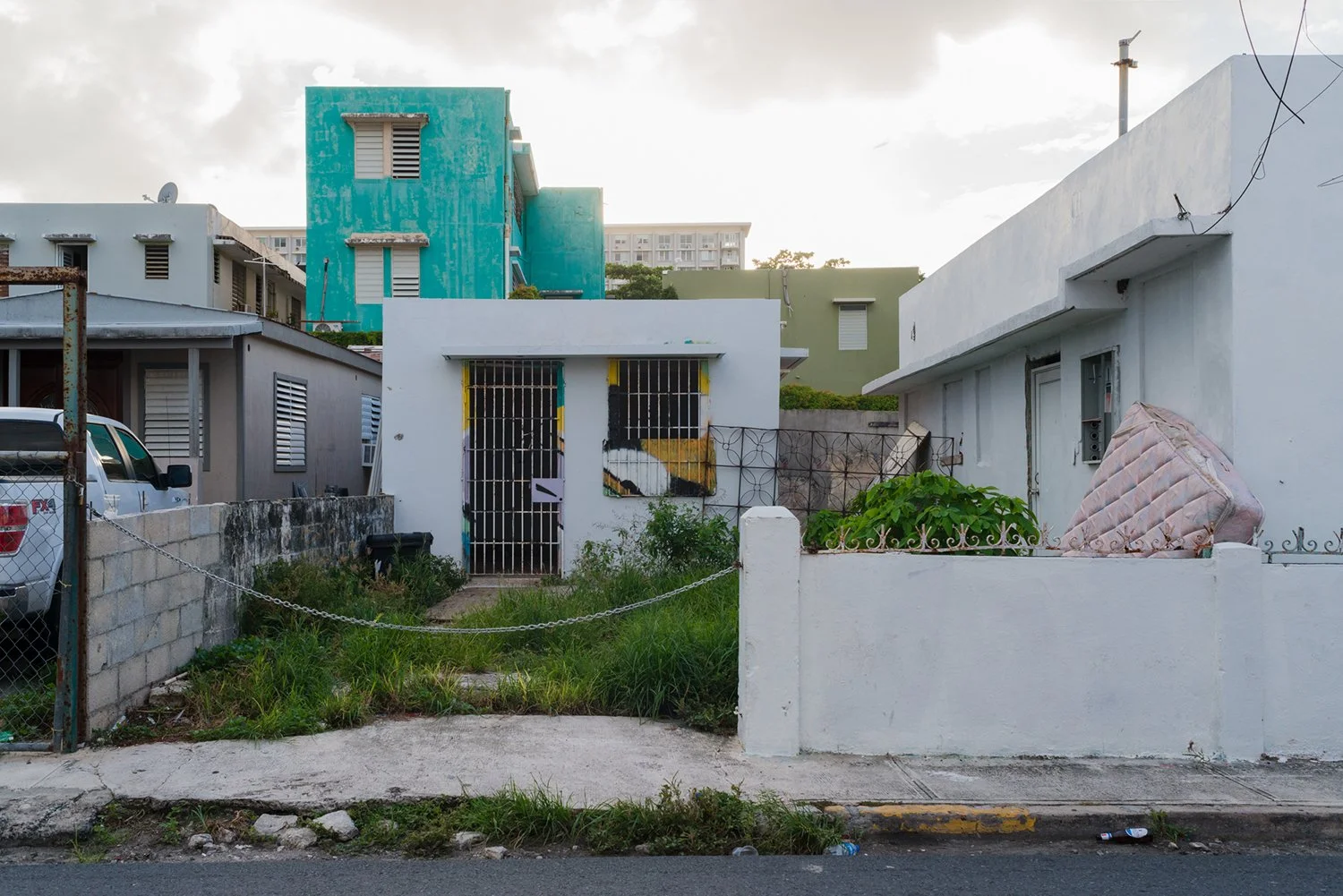

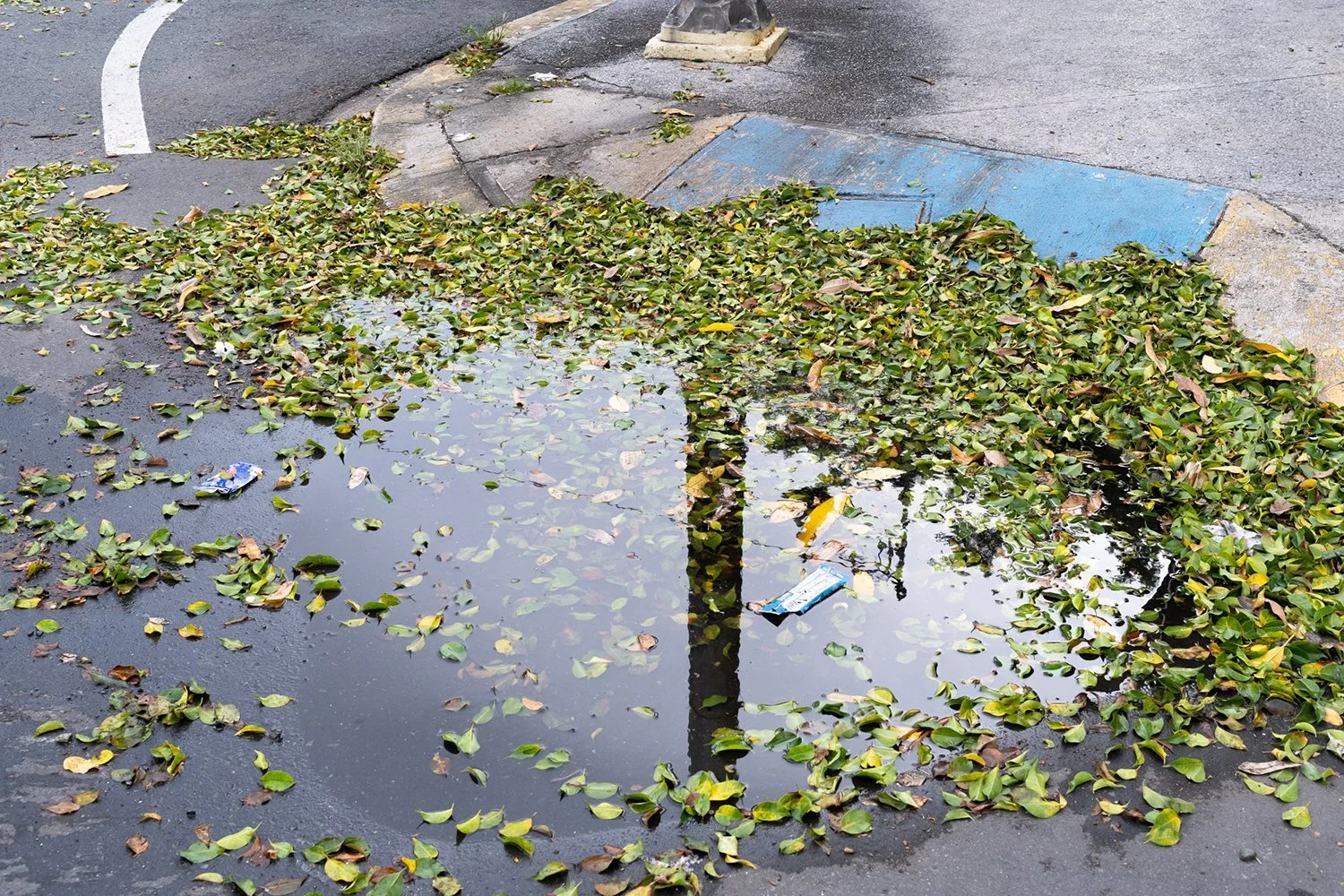
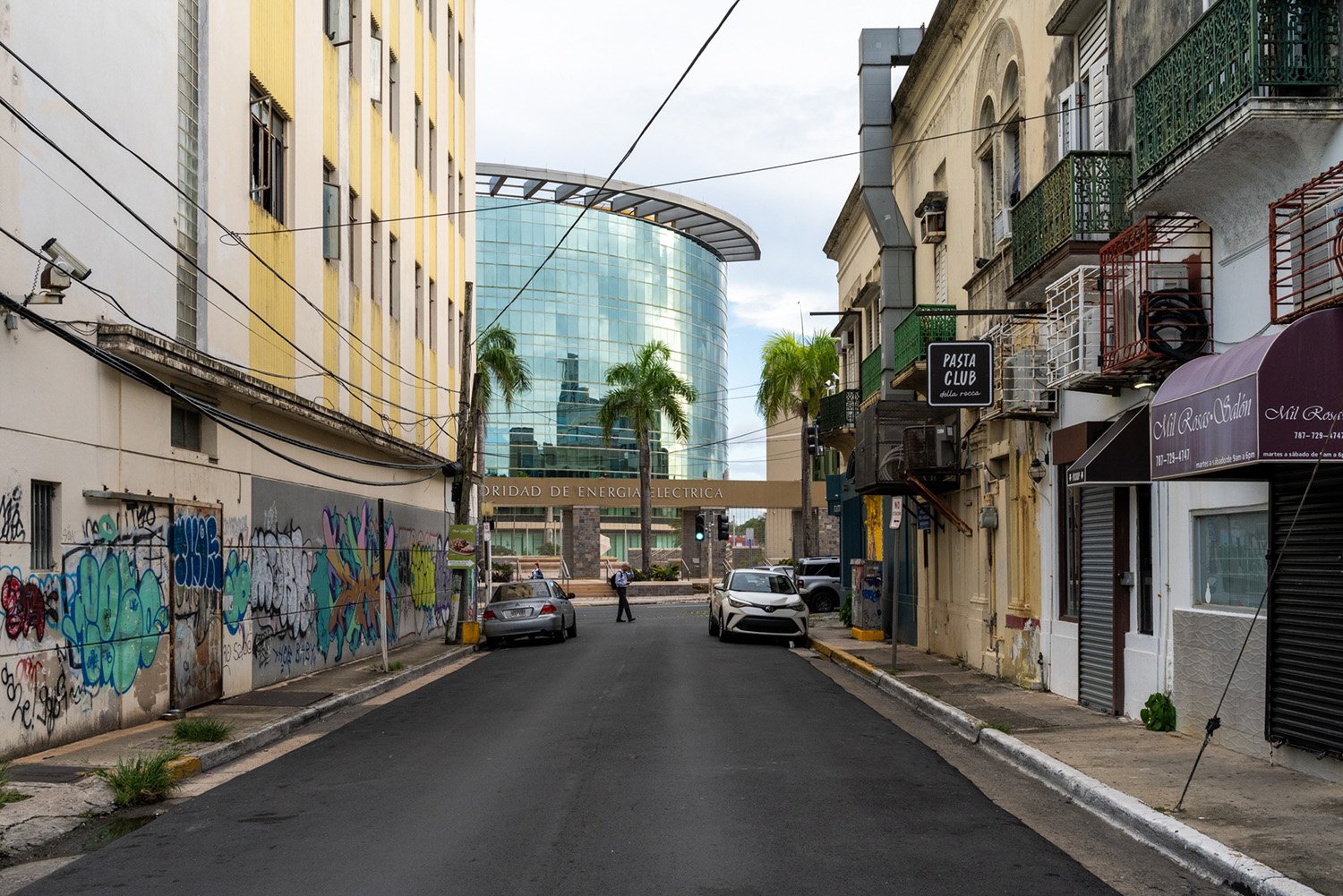
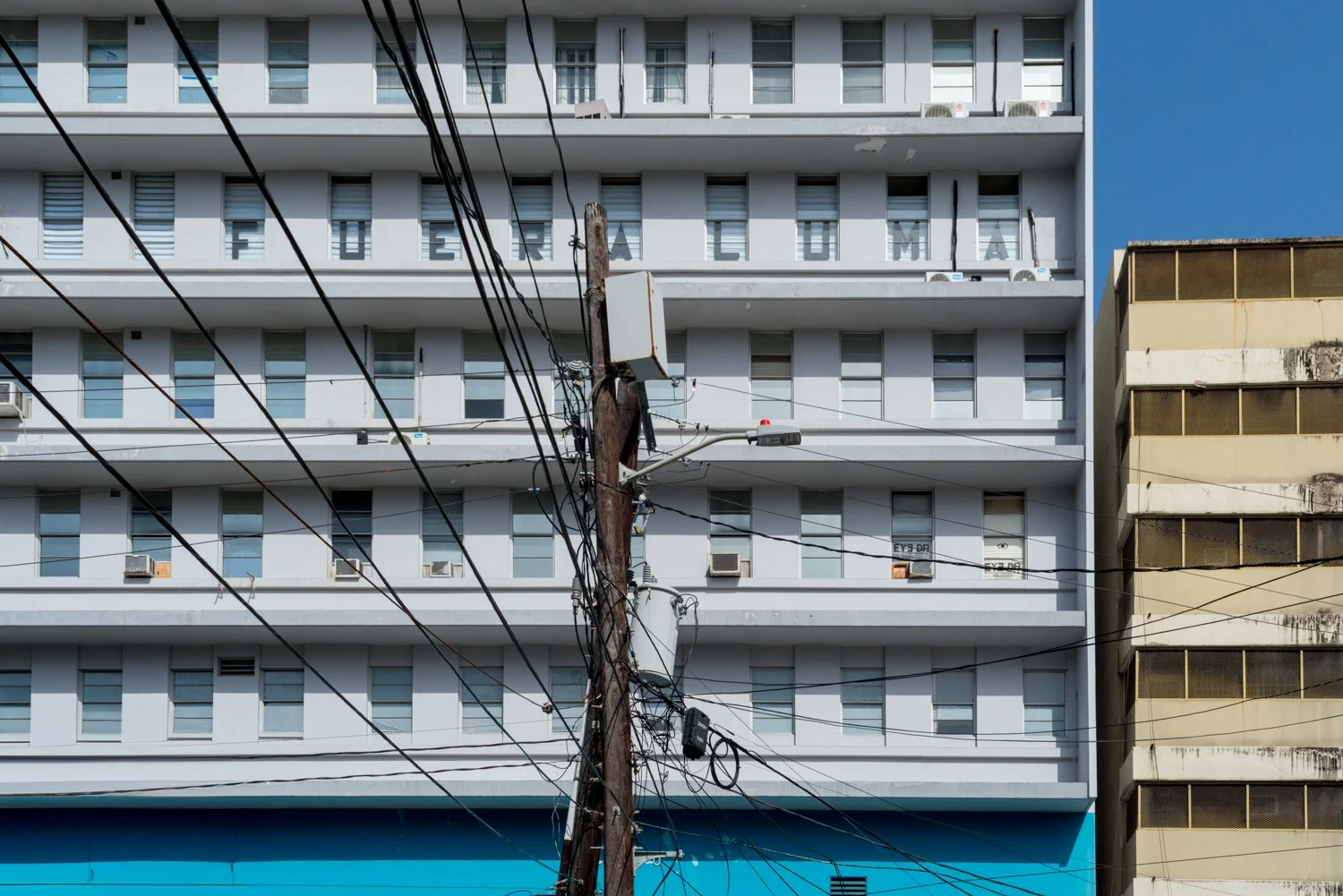
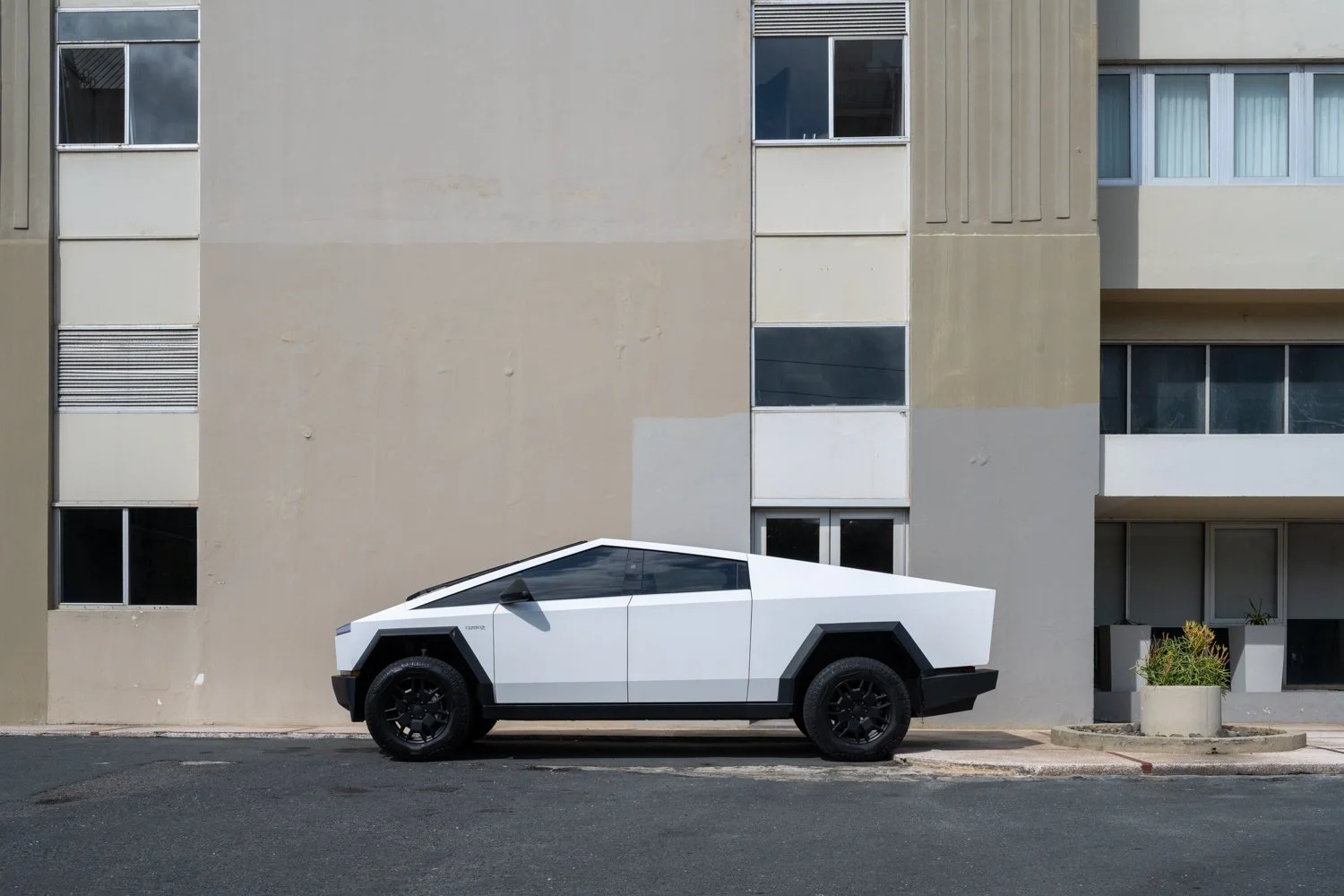
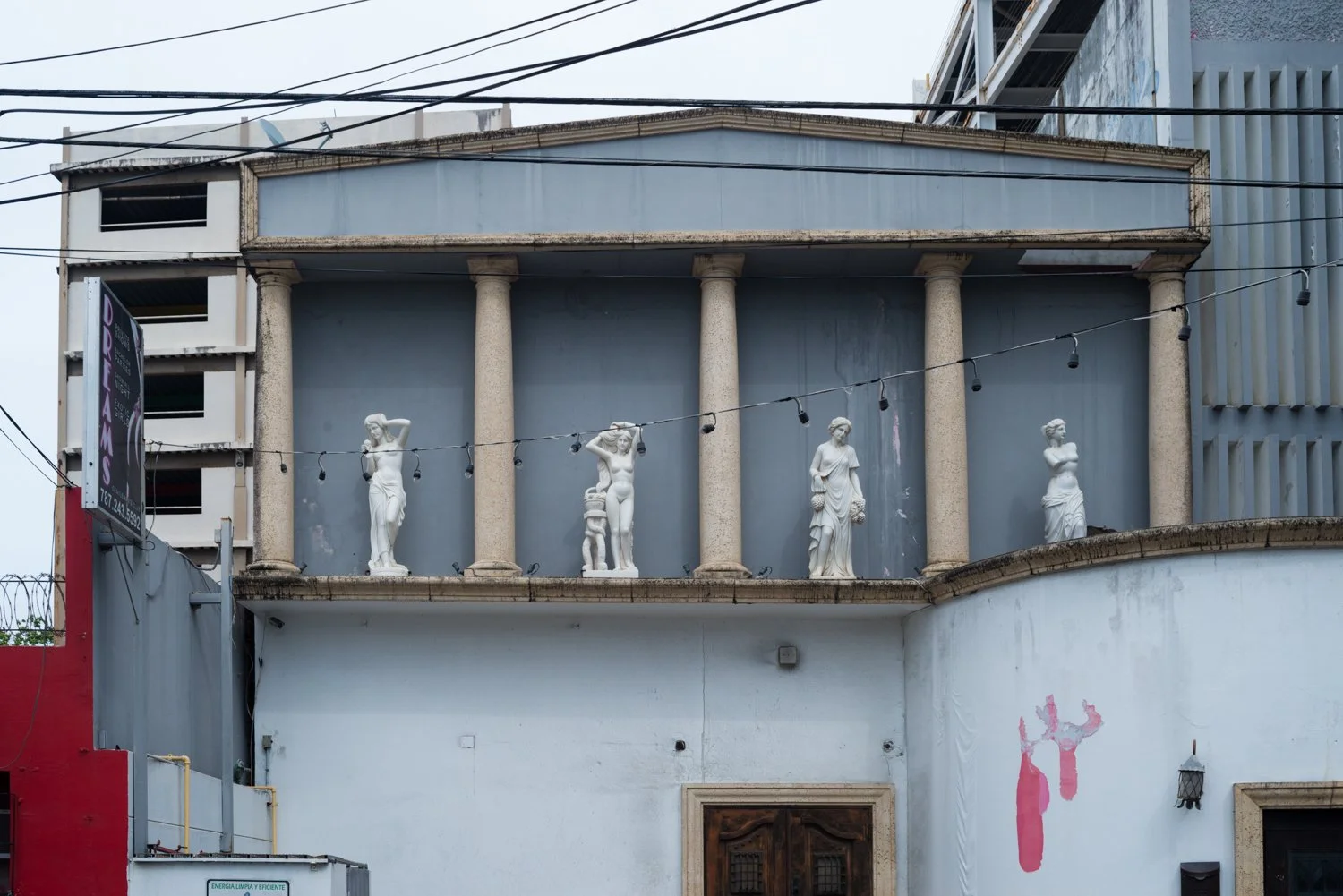
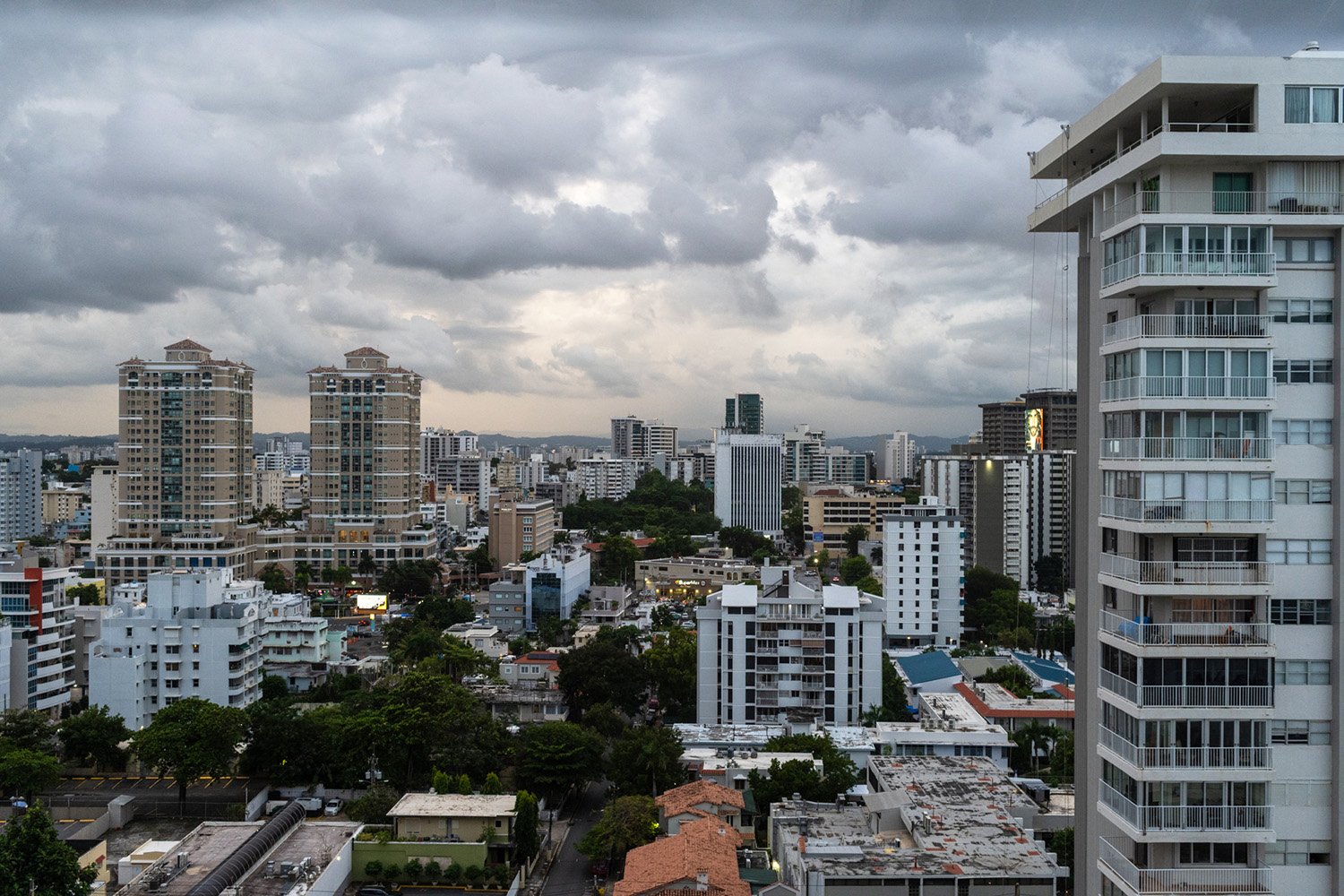
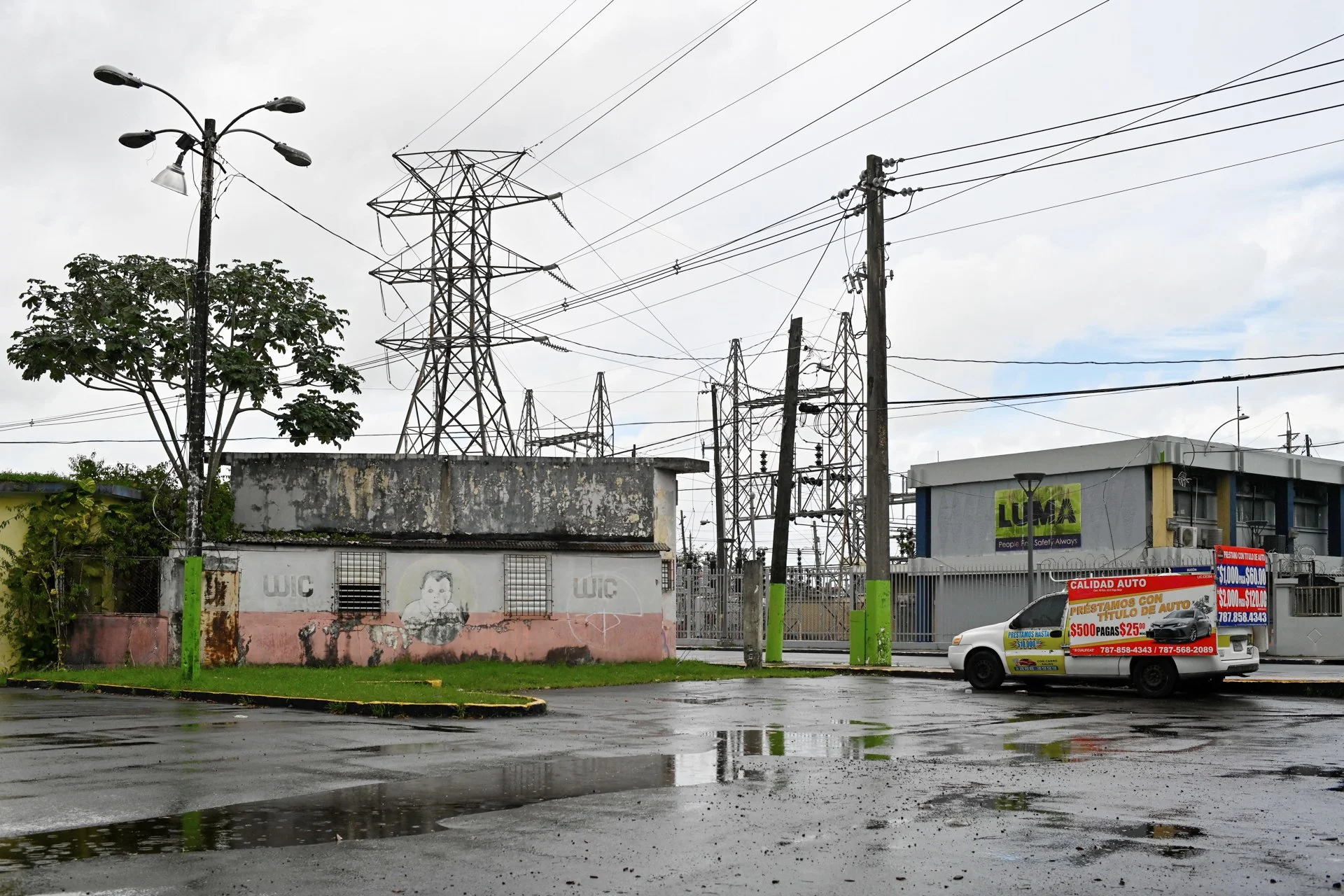
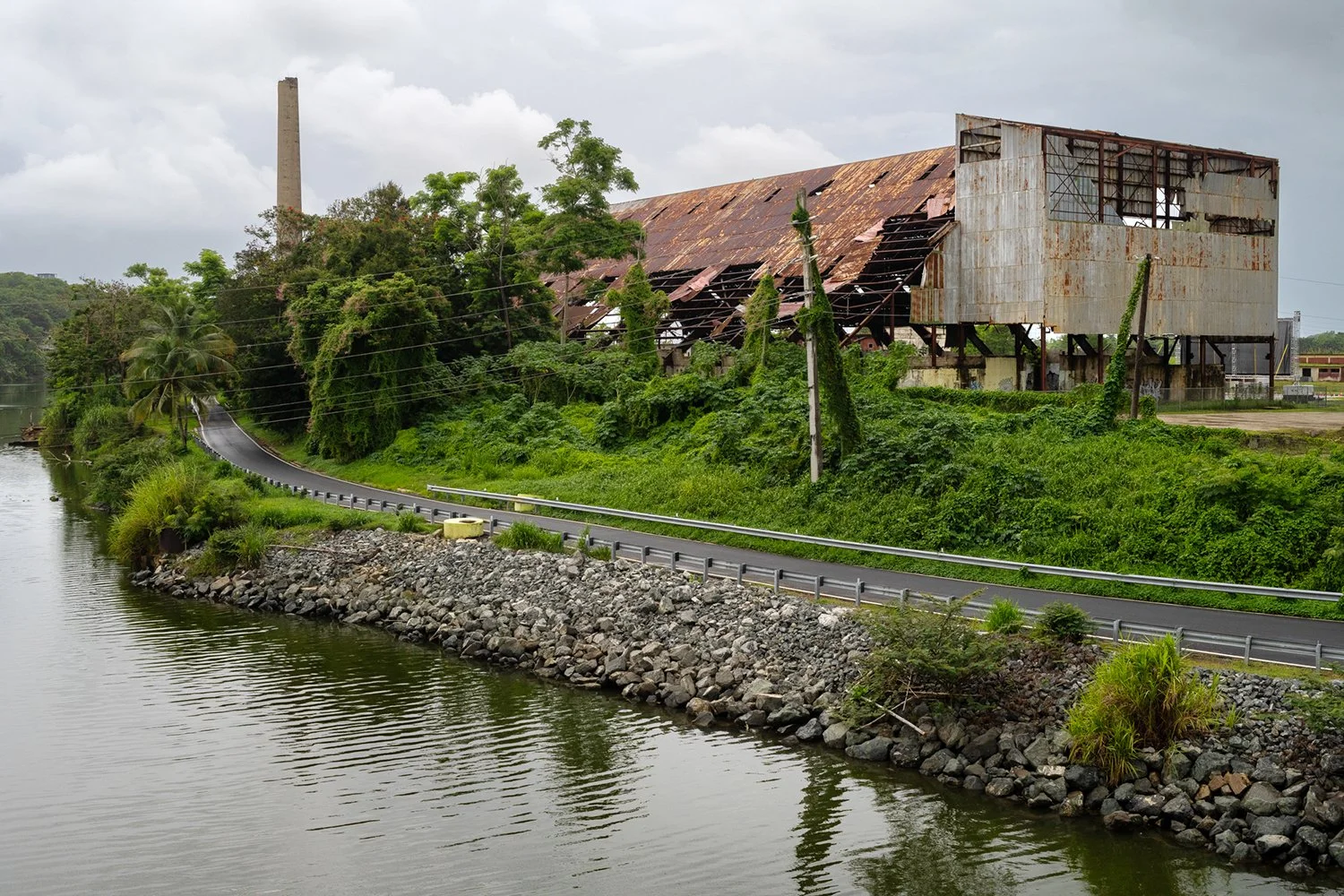
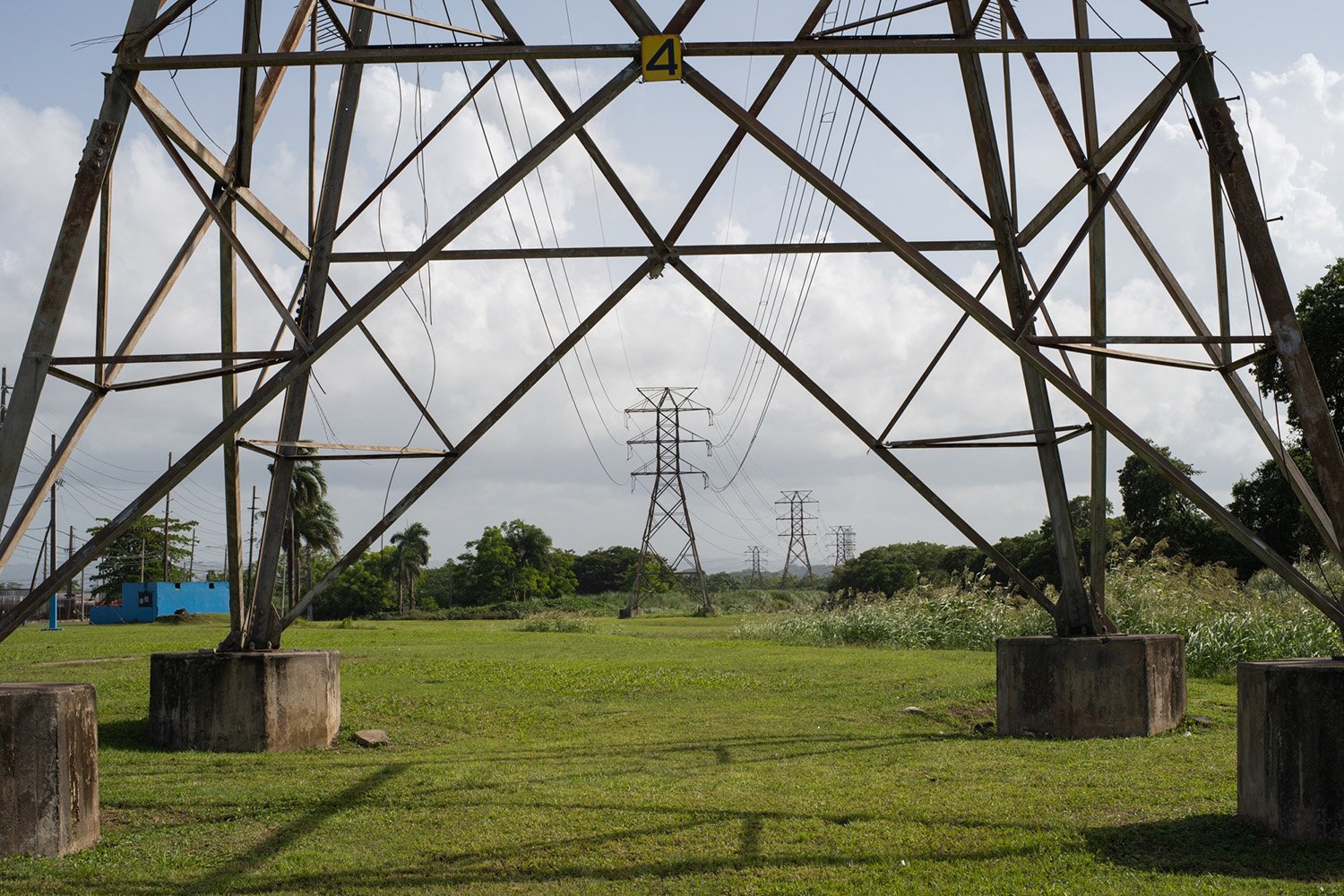
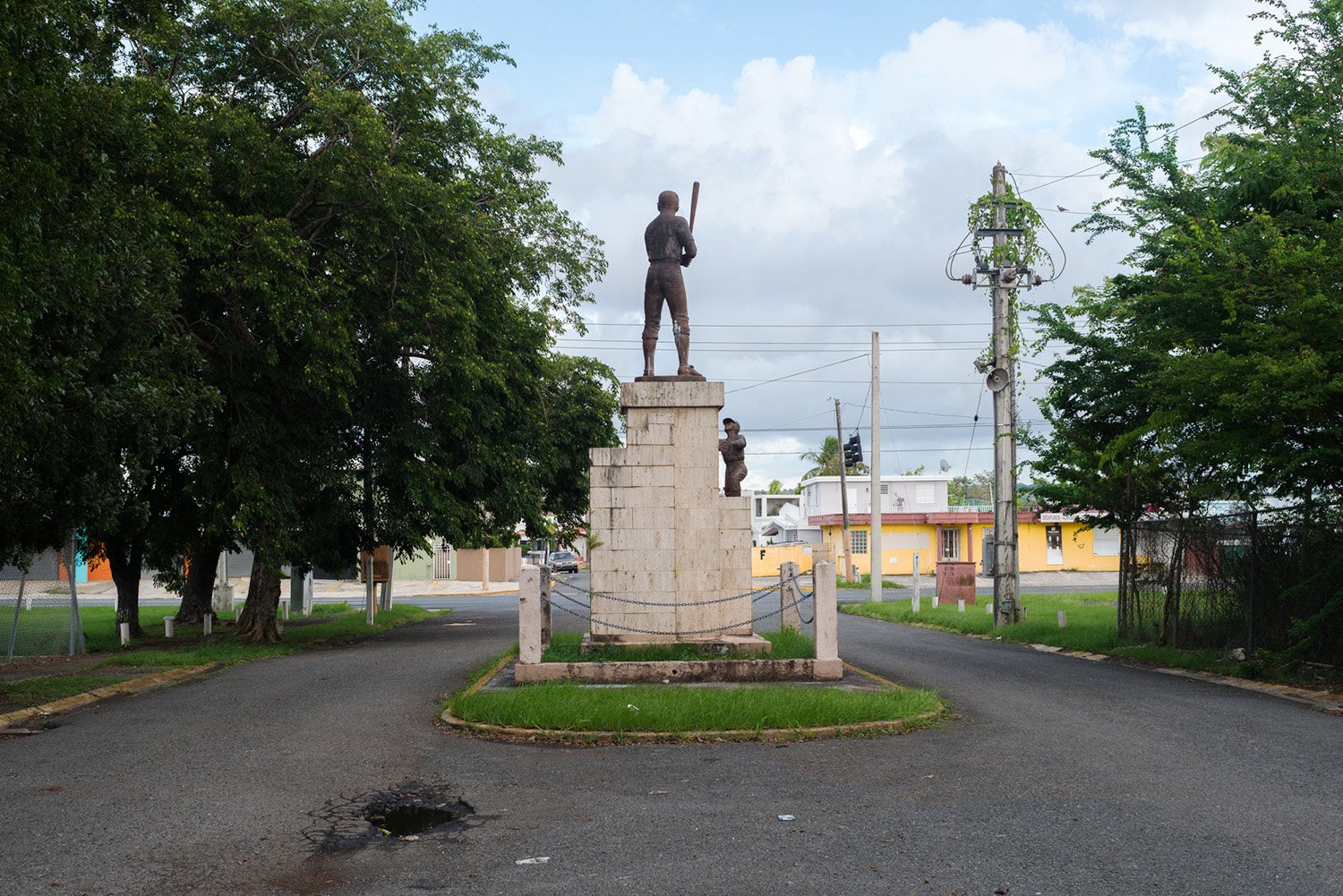
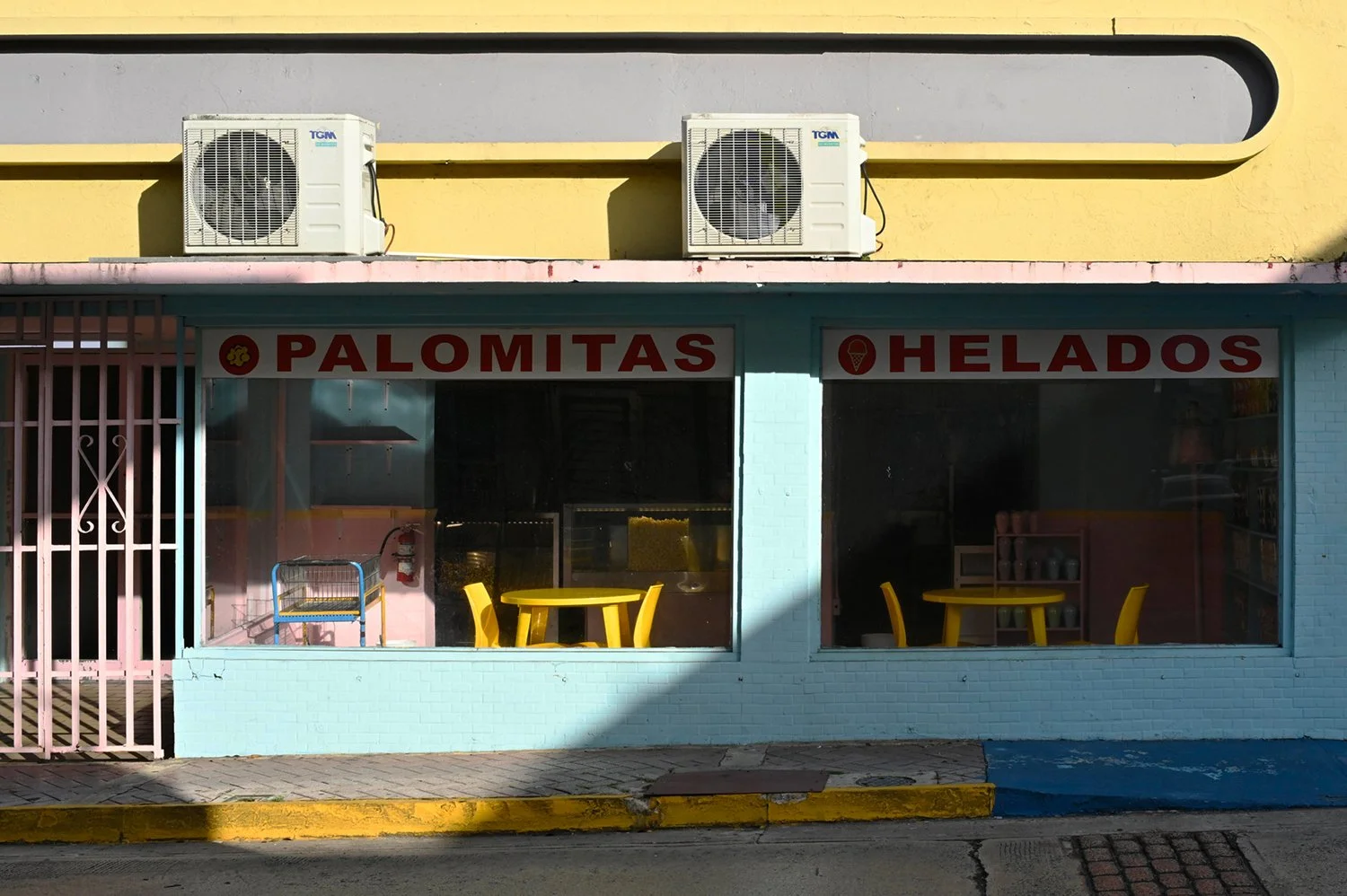
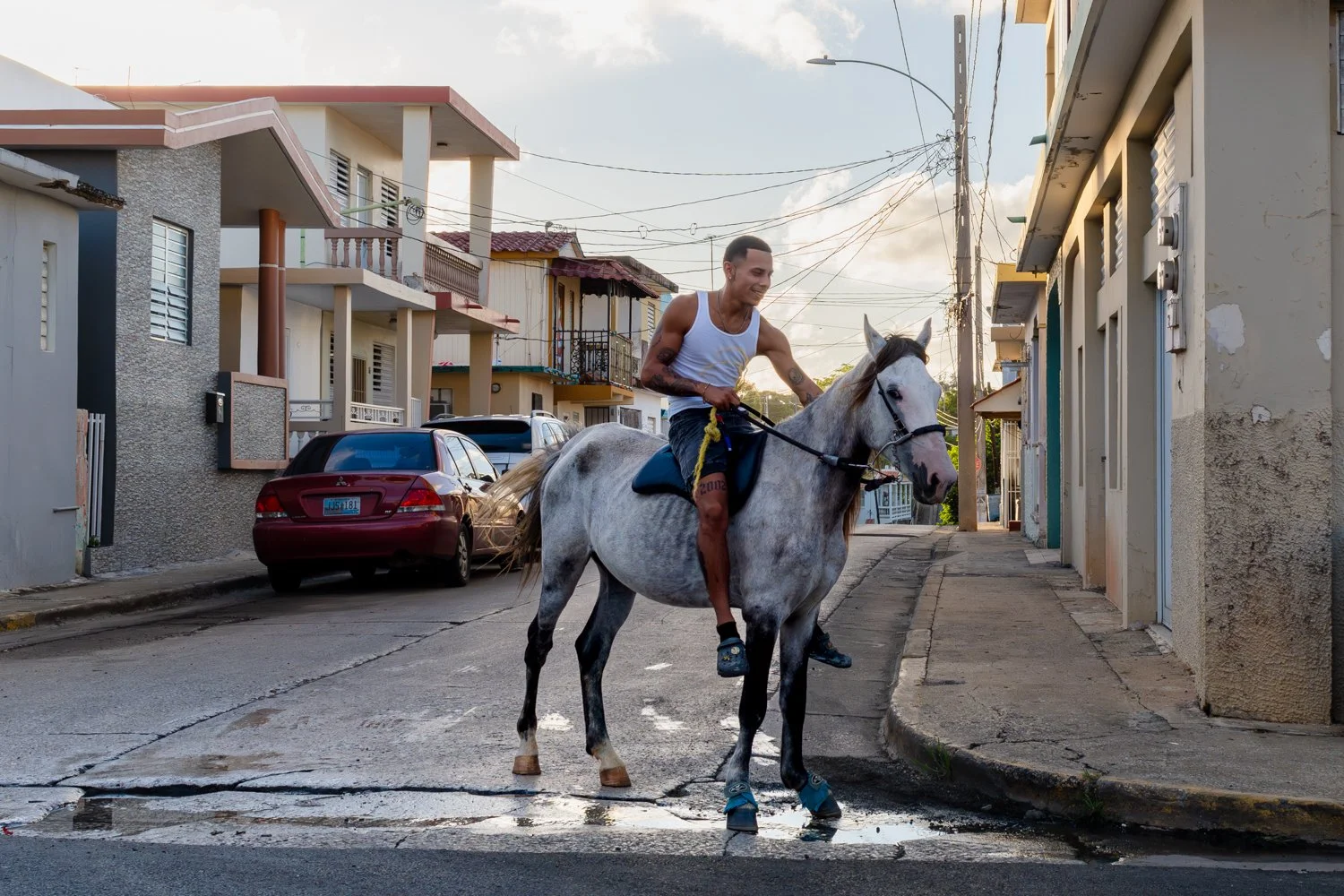
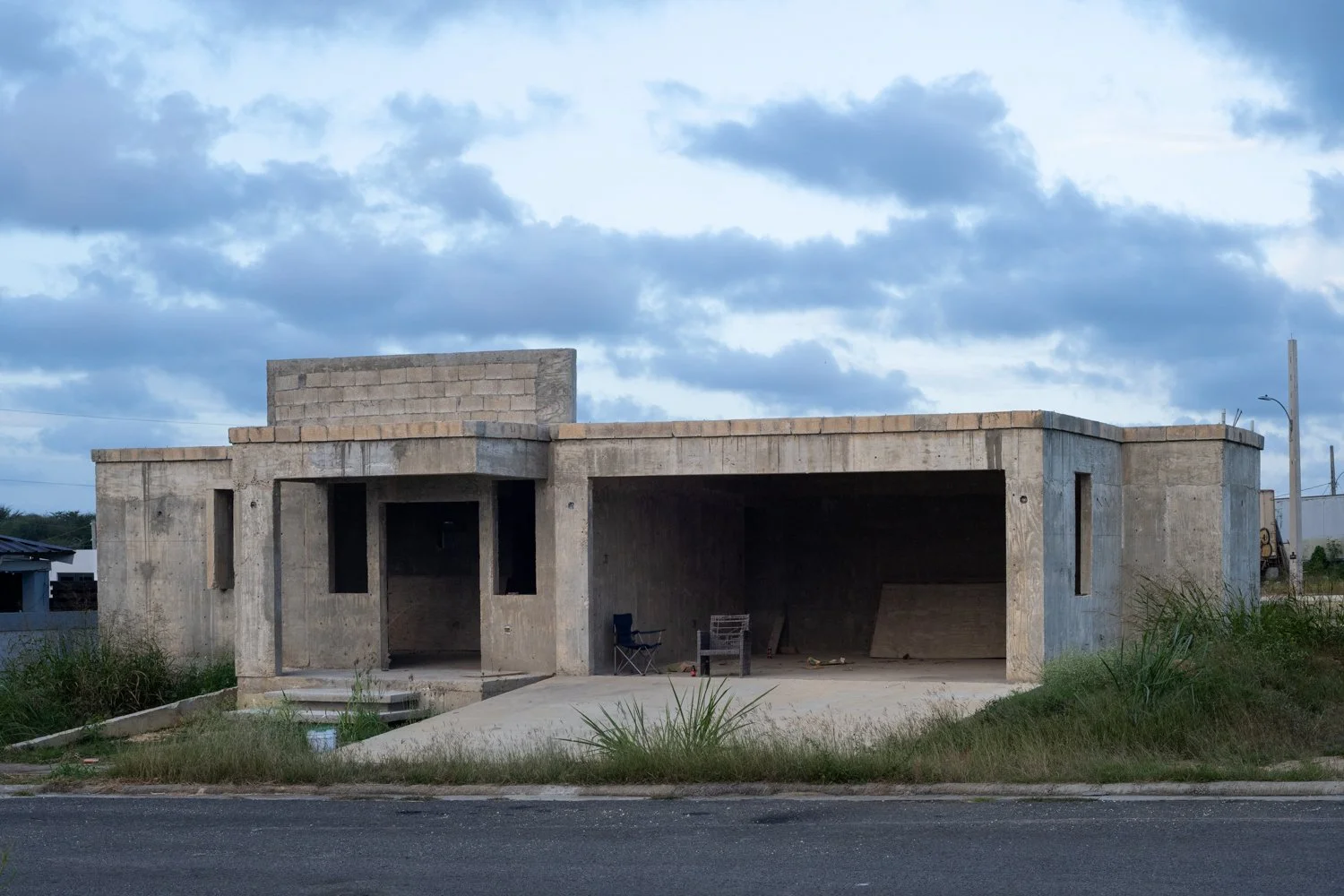
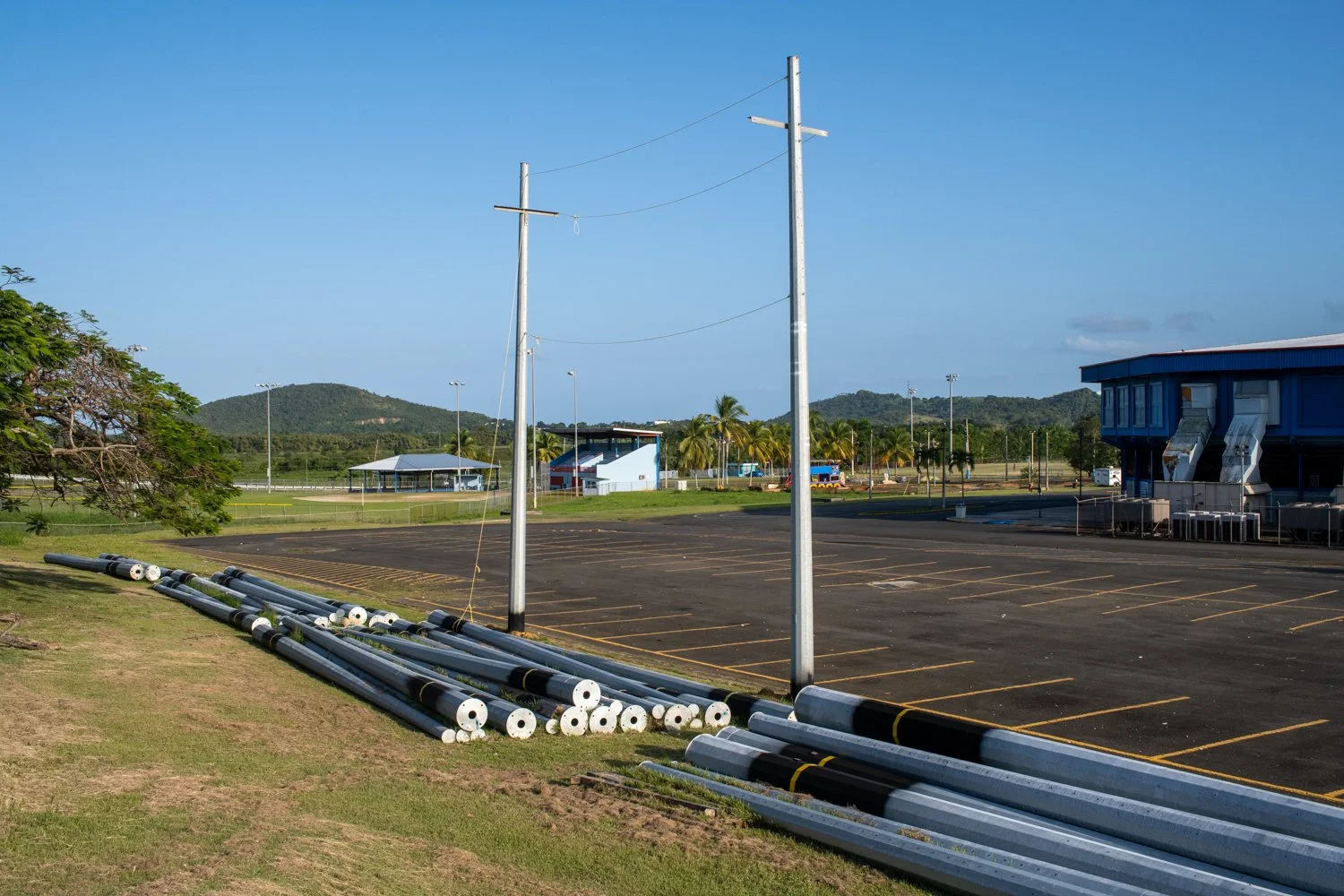


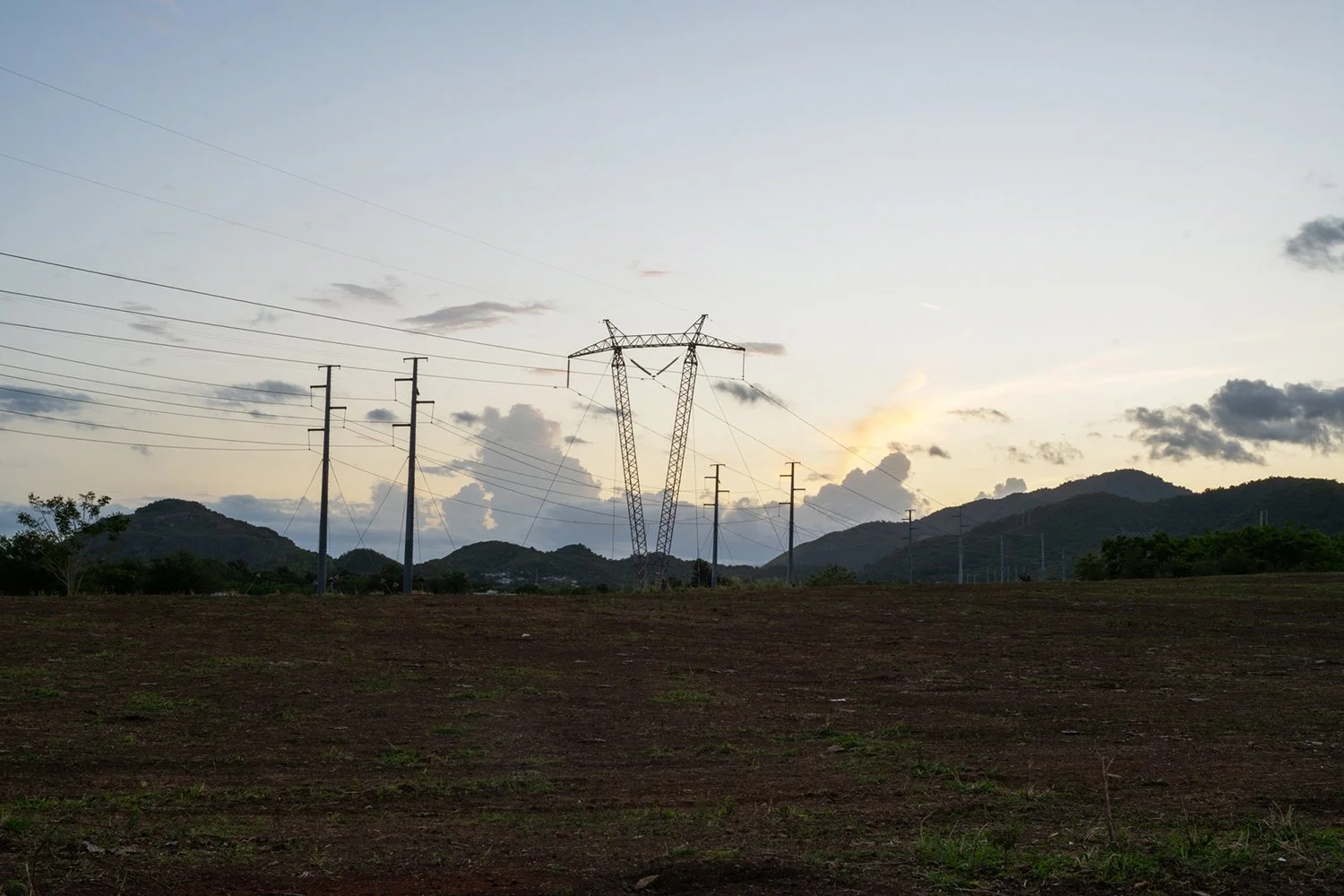
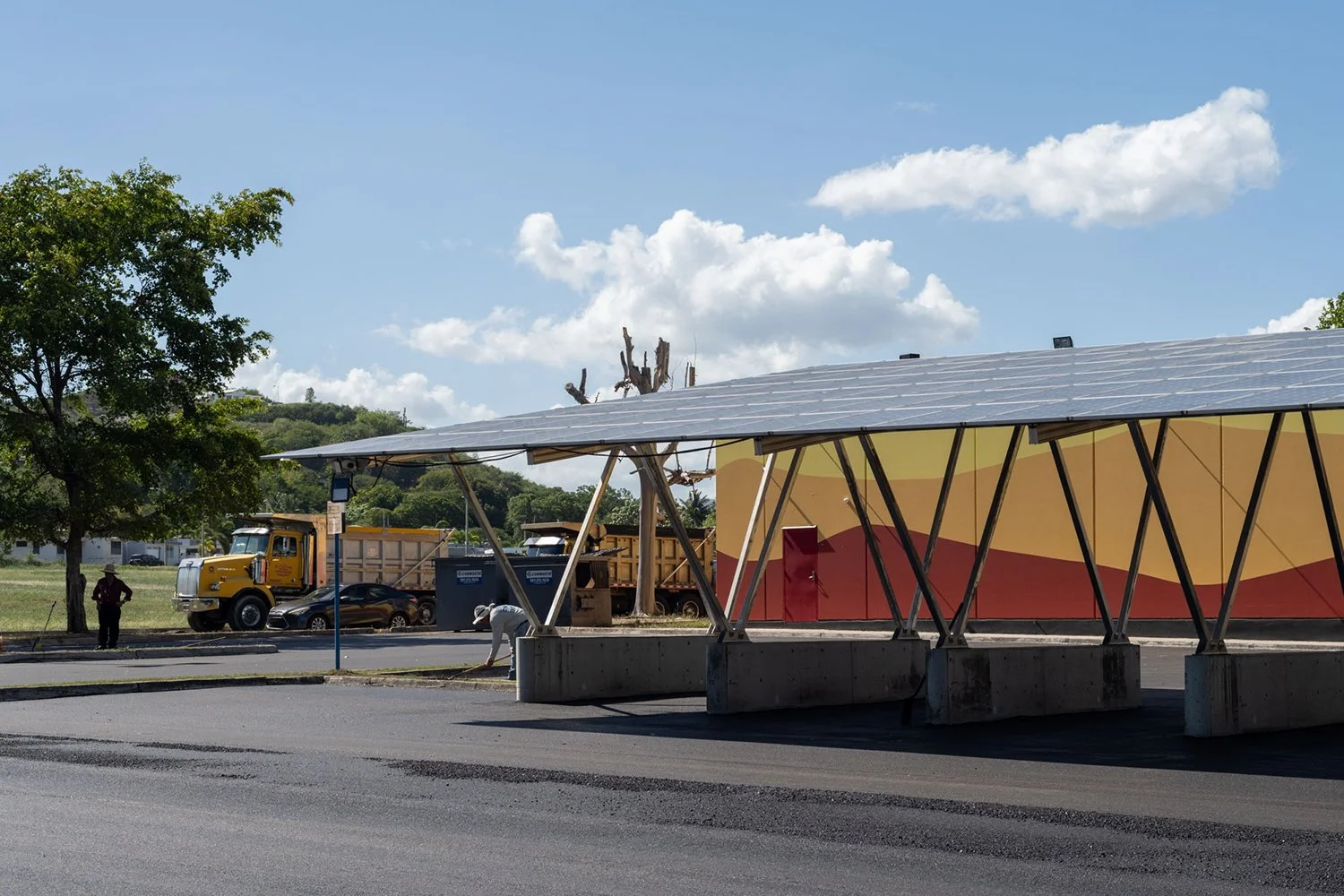
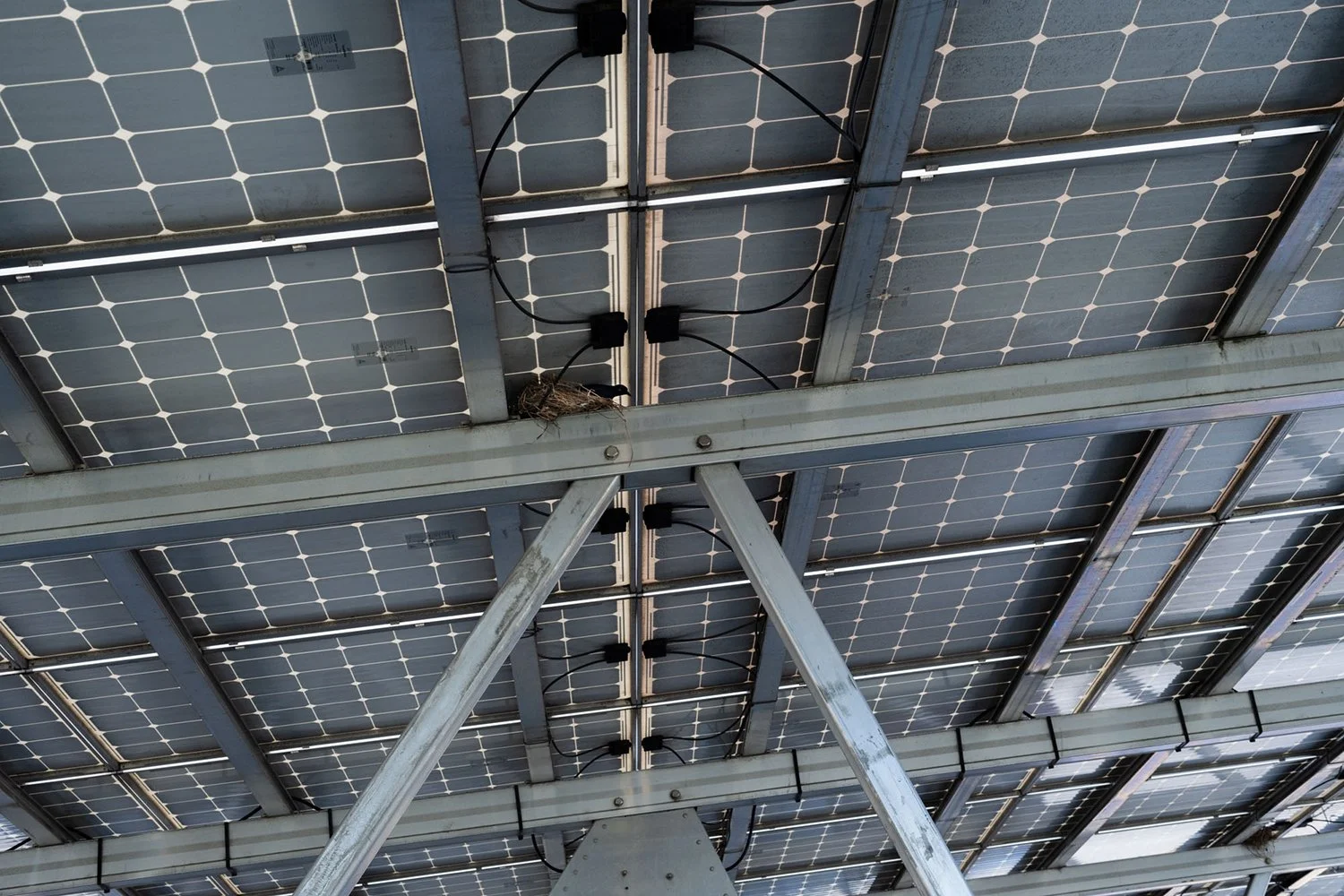

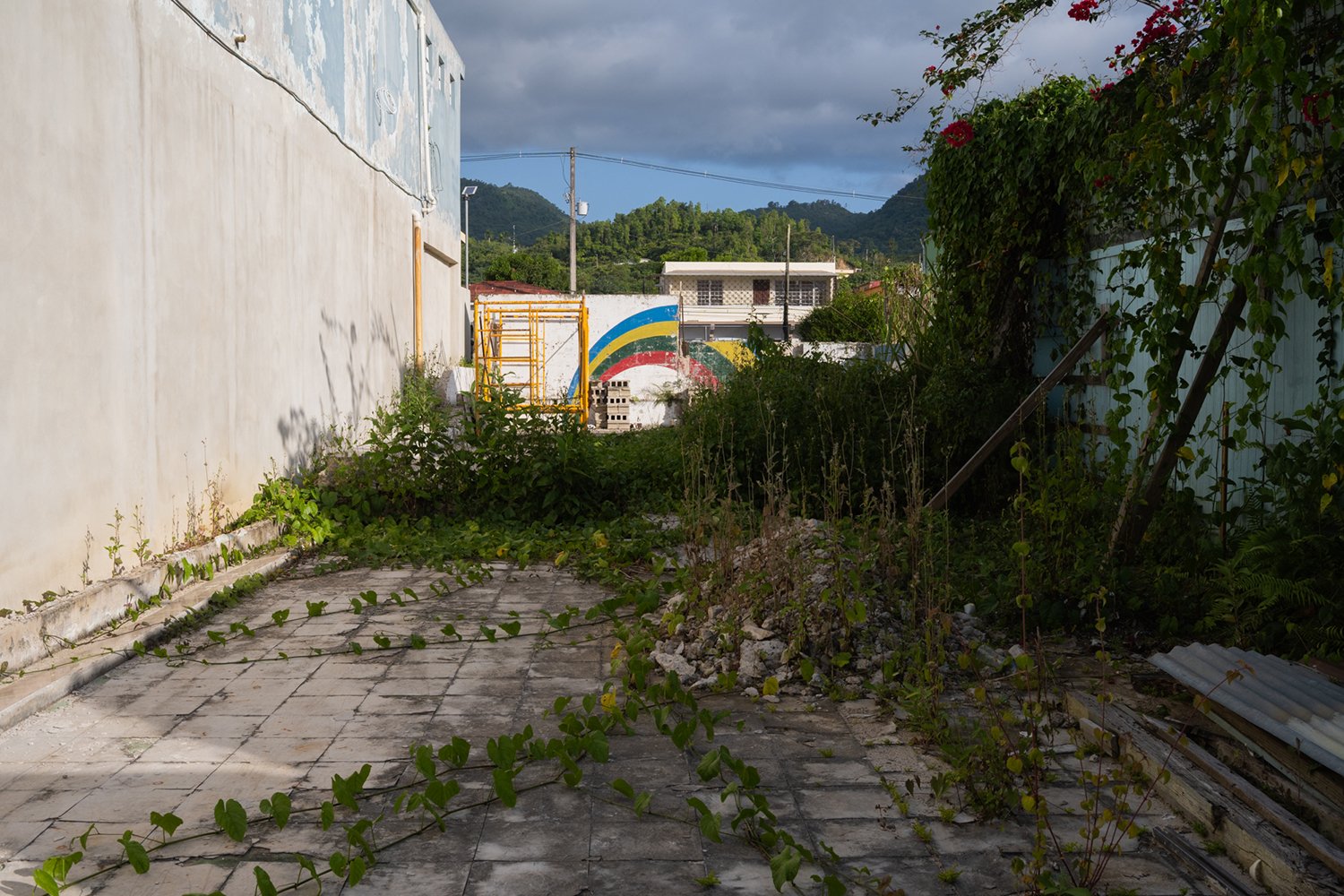

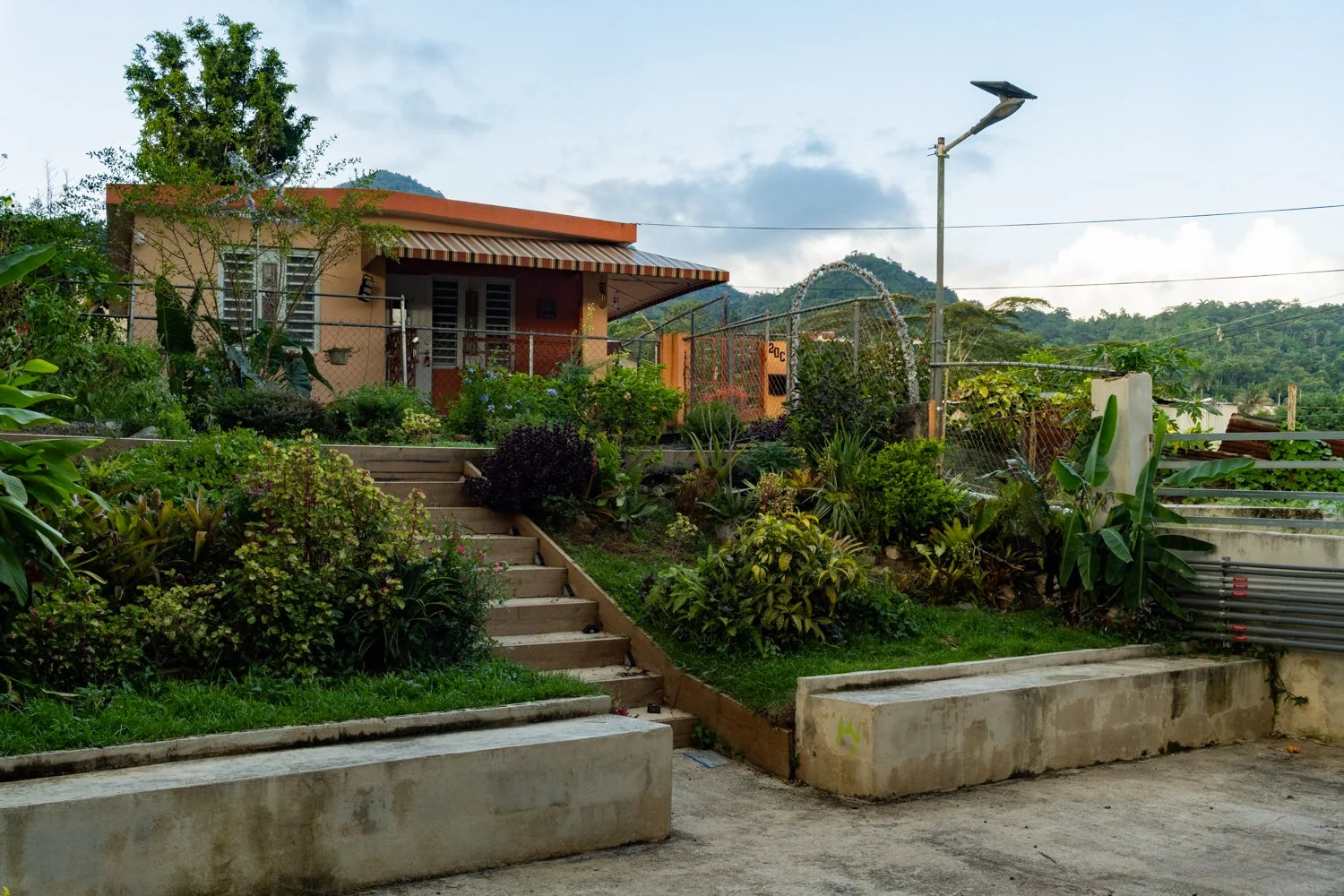
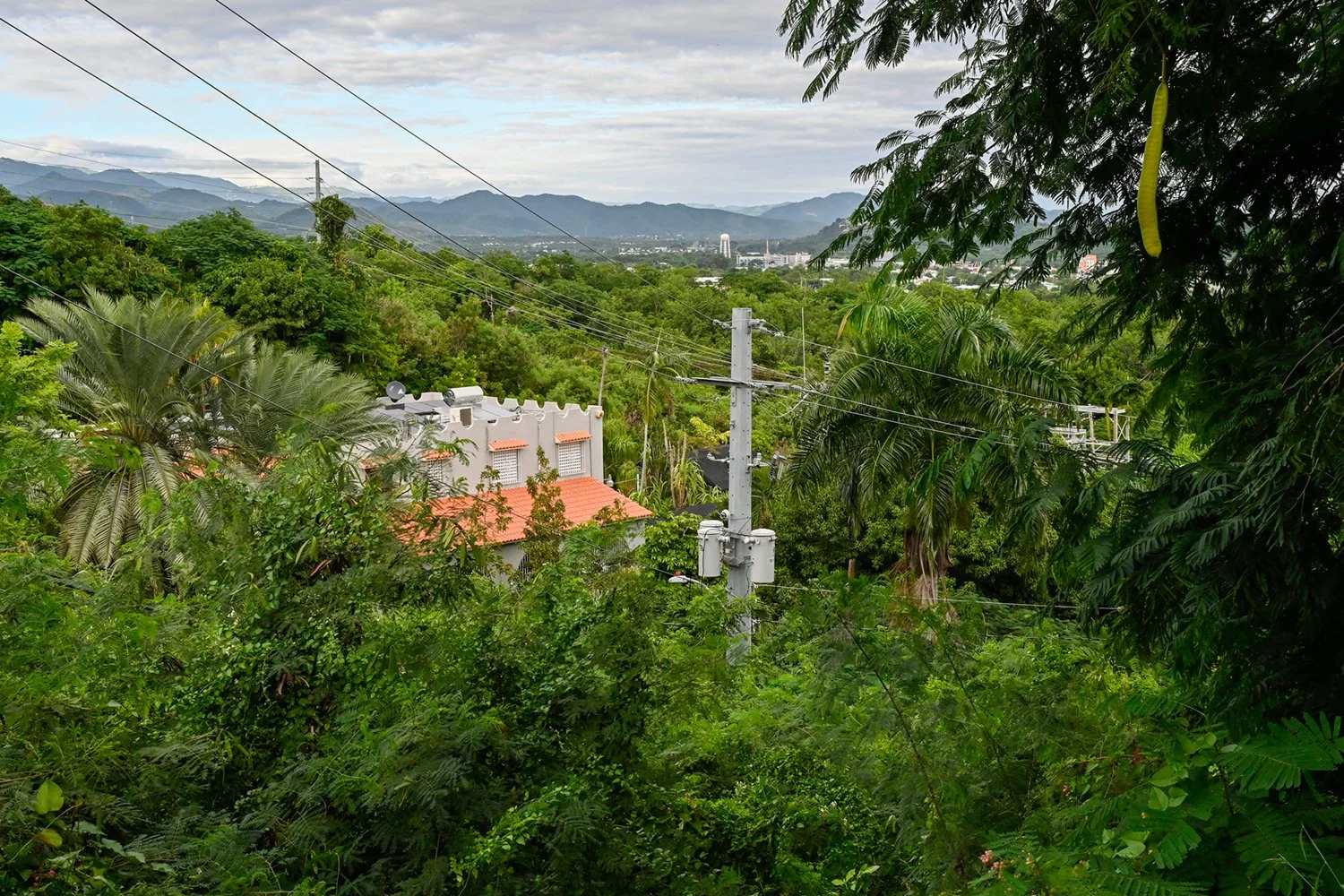
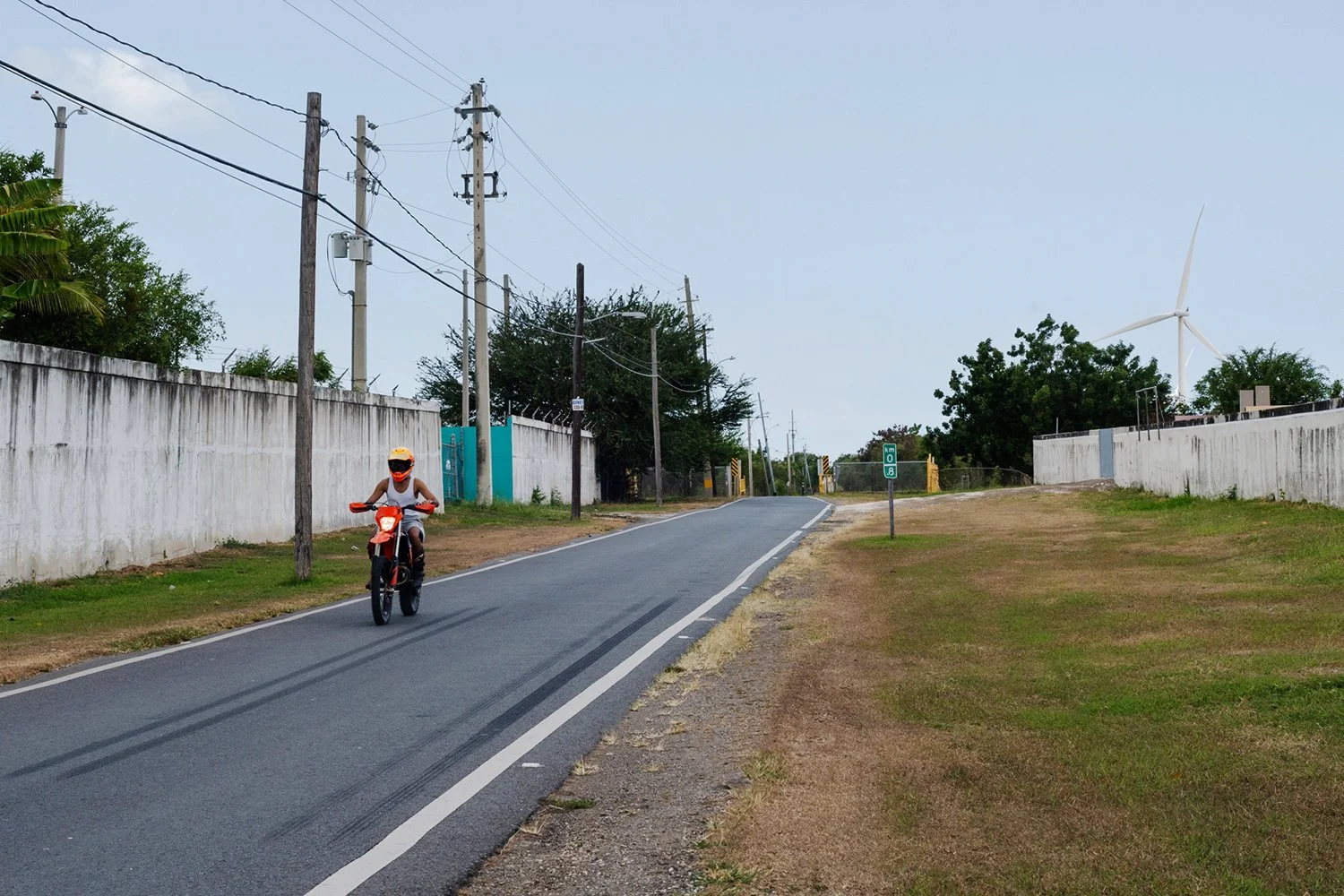
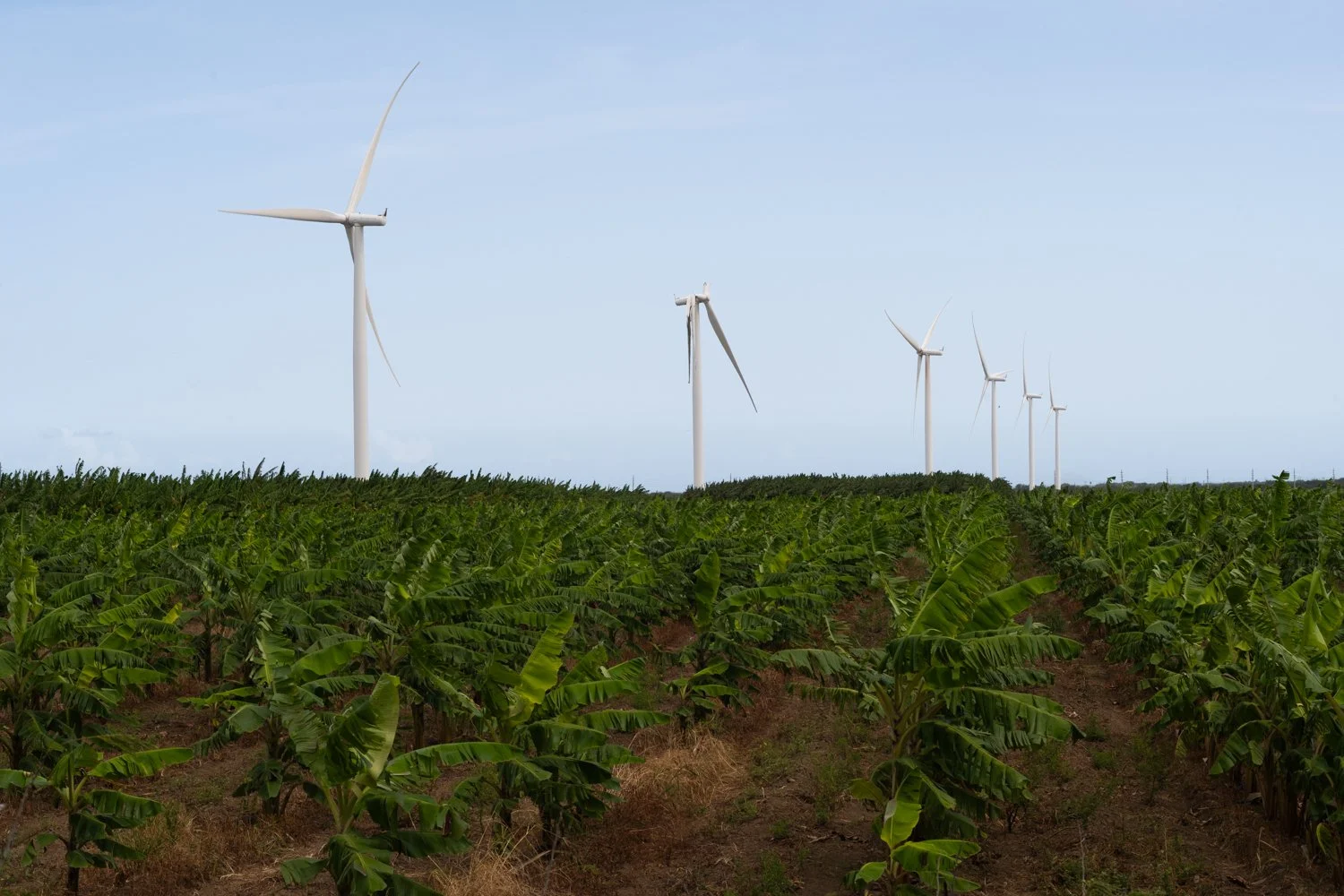
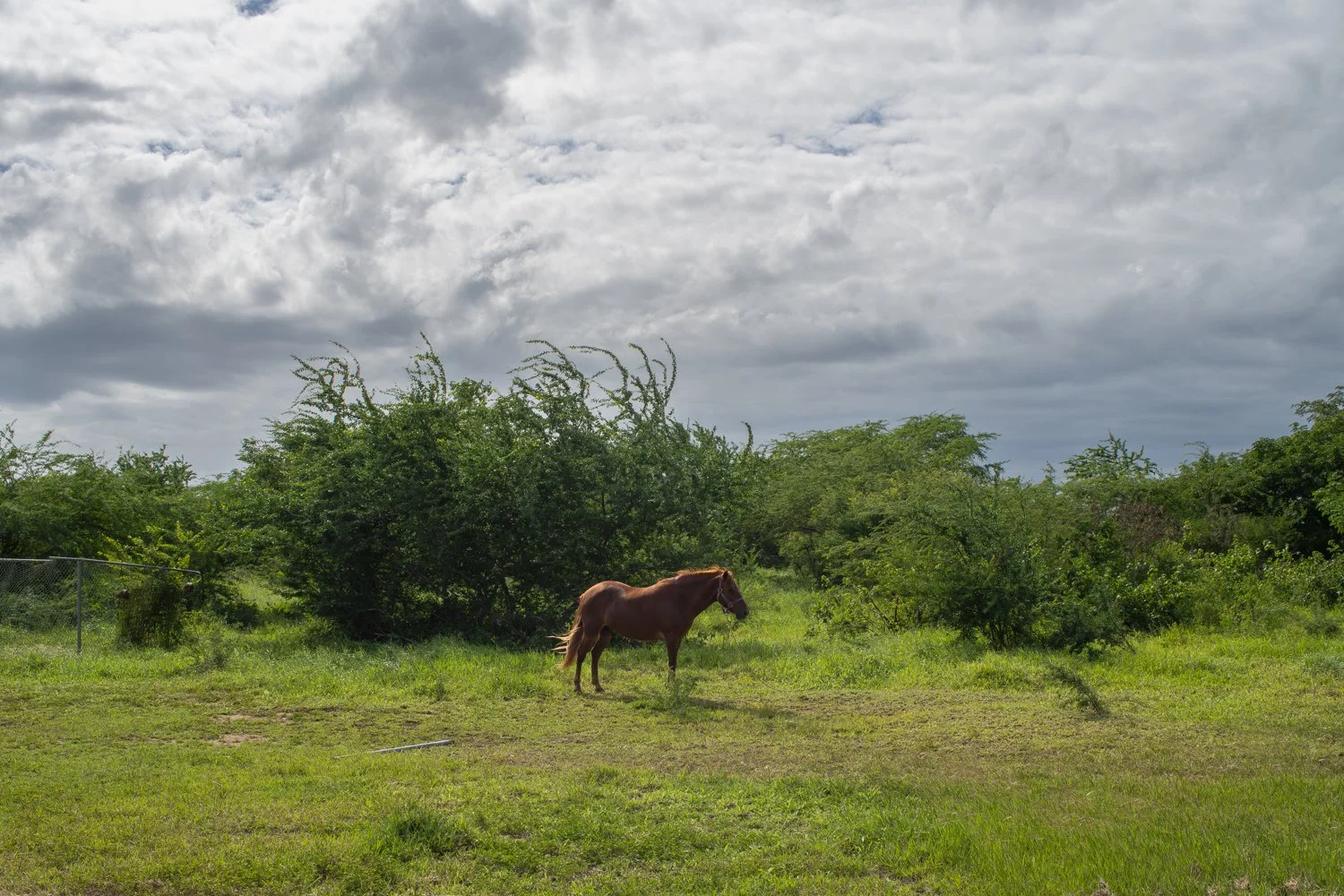

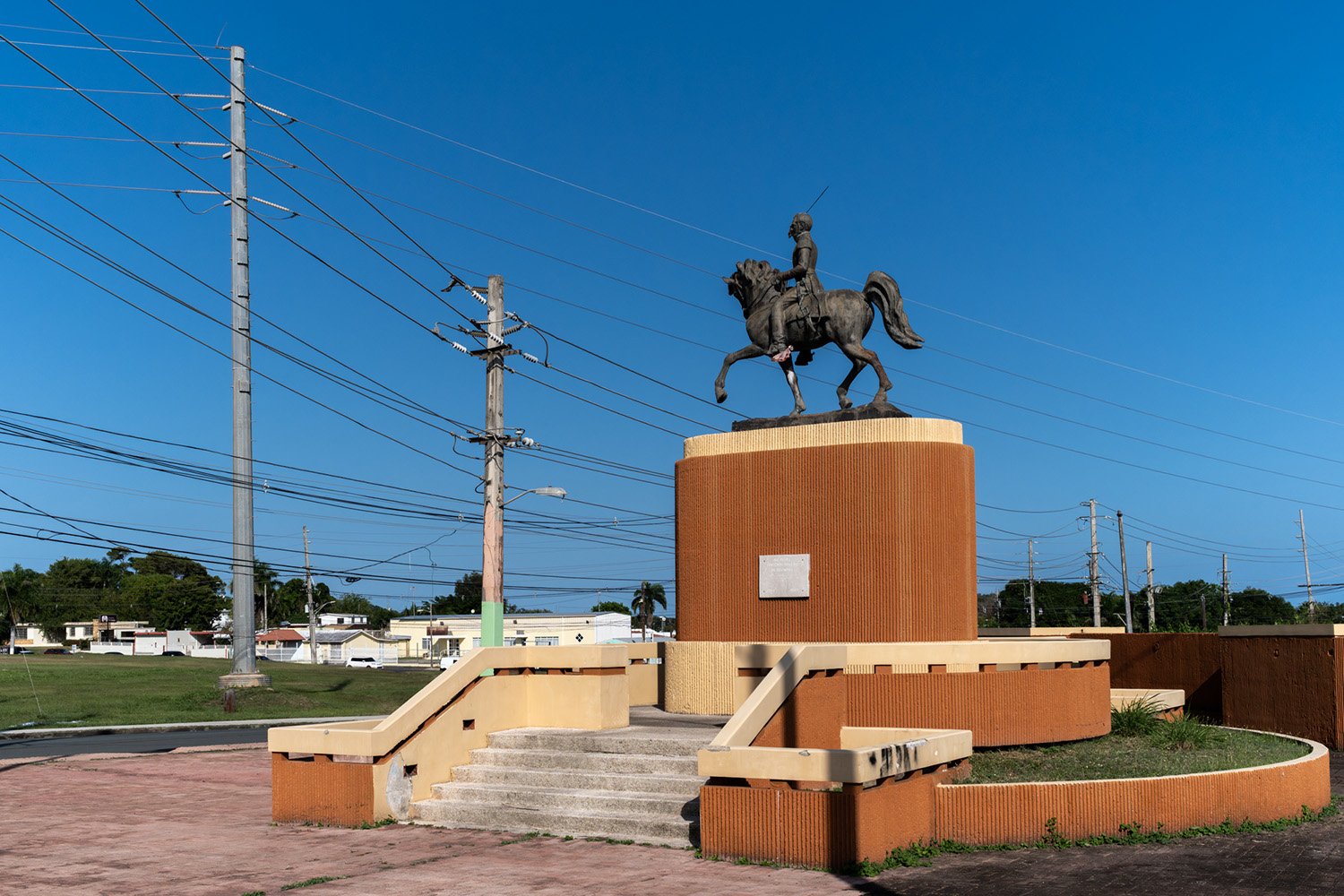


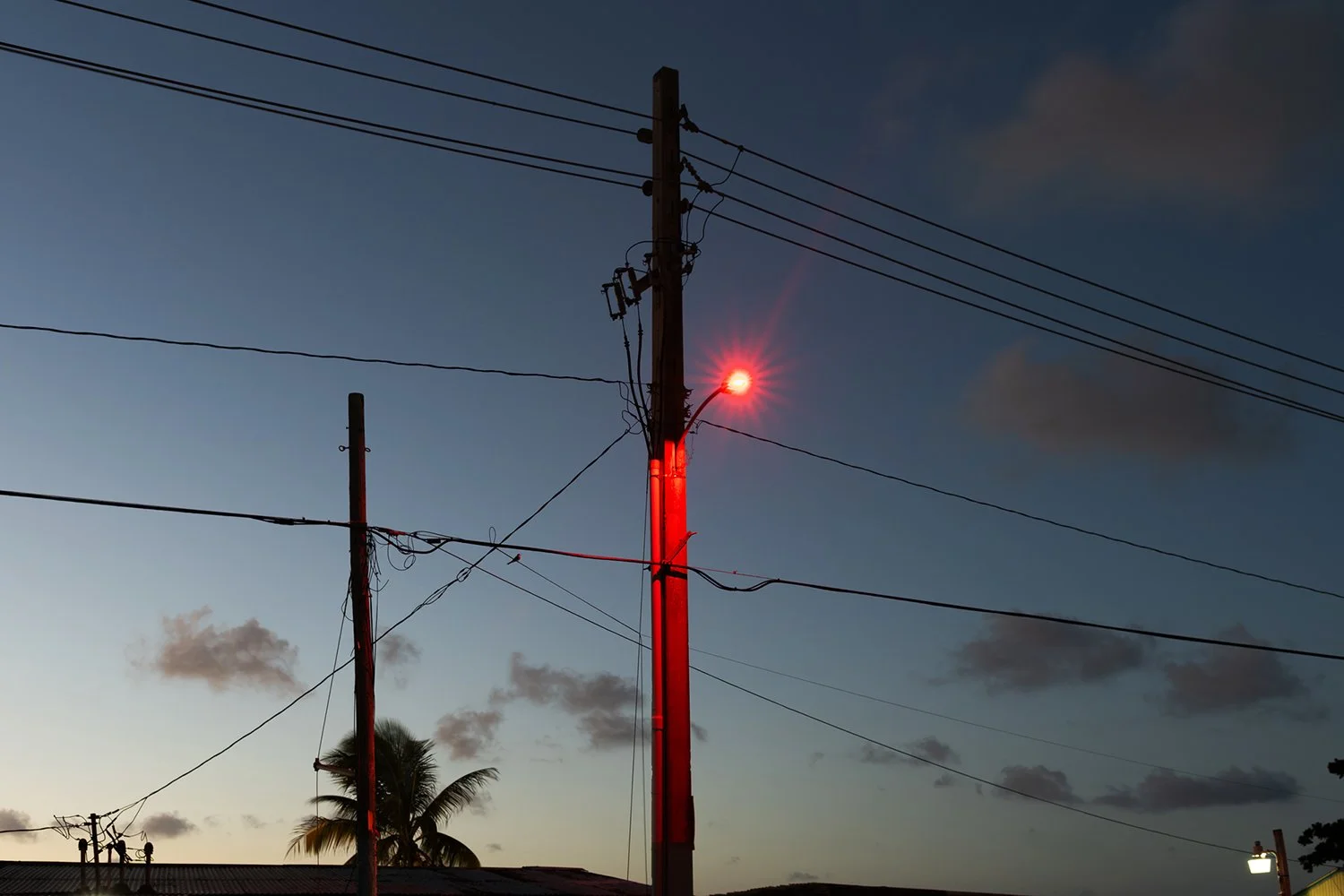
Your Custom Text Here
Electrificación is a photography series that explores life in Puerto Rico amid a failing electrical grid and deteriorating infrastructure, conditions worsened by repeated storms and unresolved damage. Instead of focusing on the dramatic aftermath of hurricanes or tropical storms, the work captures the quieter, ongoing effects of these challenges through images of land and sea, architecture, power systems, and the spaces people inhabit. The situation reflects a complex web of tourism, natural beauty, political instability as a territory, colonialism, capitalism, blackouts, storms and climate change, and local resilience.
The images in Electrificación are interpretive rather than journalistic, exploring the small adjustments, developments and workarounds, and moments in-between storms with a fragile system. Additionally, this series investigates sites of power and electrification that suggest limitations in some cases as well as renewable alternatives moving forward. Electrificación reflects on the ways life continues in the face of an American system that doesn’t fully support Puerto Rico.
While centered on Puerto Rico, my series also speaks more broadly to global challenges. The archipelago stands at the front lines of climate change, illustrating the vulnerability of infrastructure at a time when FEMA is being defunded, storm tracking cut, clean energy incentives reduced, and extreme weather intensifies. As the climate crisis accelerates, the need for environmentally safe and dependable energy is essential to the survival and independence of Puerto Rico as well as the rest of the world.
Electrificación is a photography series that explores life in Puerto Rico amid a failing electrical grid and deteriorating infrastructure, conditions worsened by repeated storms and unresolved damage. Instead of focusing on the dramatic aftermath of hurricanes or tropical storms, the work captures the quieter, ongoing effects of these challenges through images of land and sea, architecture, power systems, and the spaces people inhabit. The situation reflects a complex web of tourism, natural beauty, political instability as a territory, colonialism, capitalism, blackouts, storms and climate change, and local resilience.
The images in Electrificación are interpretive rather than journalistic, exploring the small adjustments, developments and workarounds, and moments in-between storms with a fragile system. Additionally, this series investigates sites of power and electrification that suggest limitations in some cases as well as renewable alternatives moving forward. Electrificación reflects on the ways life continues in the face of an American system that doesn’t fully support Puerto Rico.
While centered on Puerto Rico, my series also speaks more broadly to global challenges. The archipelago stands at the front lines of climate change, illustrating the vulnerability of infrastructure at a time when FEMA is being defunded, storm tracking cut, clean energy incentives reduced, and extreme weather intensifies. As the climate crisis accelerates, the need for environmentally safe and dependable energy is essential to the survival and independence of Puerto Rico as well as the rest of the world.
www.danfarnum.com